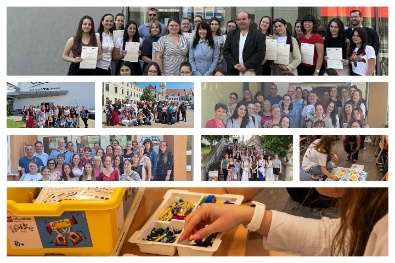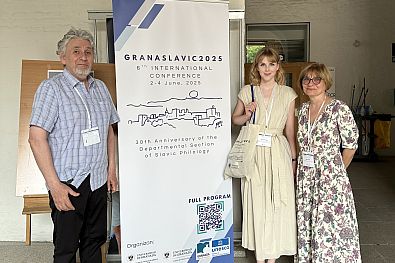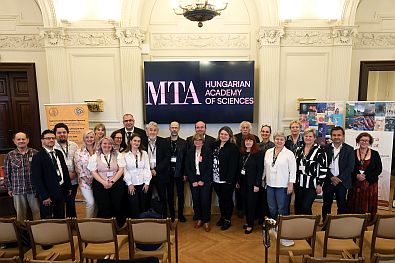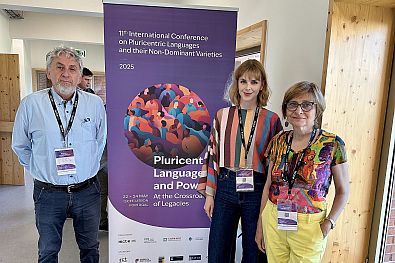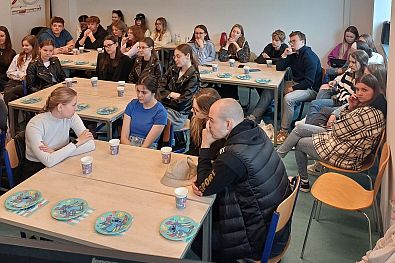Preparation of Future Teachers of Slovak Language and Slovak Literature for Educational Practice in Schools with Hungarian as the Language of Instruction
Project title: Preparation of Future Teachers of Slovak Language and Slovak Literature for Educational Practice in Schools with Hungarian as the Language of Instruction
Project code: 06R02-20-V01-00002
Code and application title: Pilot Testing of Changes in the Preparation of Future Teachers of Slovak in Minority Schools
Website: https://www.projektzplanuobnovy.superhost.sk

Educational Robotics and 3D Technology in Practice: International BIP Programme at the Faculty of Central European Studies
From 9 to 13 June 2025, the Faculty of Central European Studies and its Institute for Teacher Training at Constantine the Philosopher University in Nitra organised the first Erasmus+ Blended Intensive Programme (BIP) in the history of the university, focusing on innovative ways to develop algorithmic thinking. The programme aimed to provide participating students with hands-on experience in applying educational robotics and 3D technology in primary schools. [Detailed Information about the Programme: https://www.fss.ukf.sk/en/international-relations/bip-en]
Twenty students from three partner institutions—Eötvös Lóránd University (Budapest), Apor Vilmos Catholic College (Vác), and Partium Christian University (Oradea)—took part in interactive workshops as part of the BIP. Here, they were introduced to the educational applications of 3D printing, Ozobot, BeeBot, and LEGO robots. Throughout the programme, students not only acquired theoretical knowledge but also had the chance to observe their learning in a real-life environment.
At the opening ceremony, the hosts welcomed the participants and briefly presented the faculty's teaching and research orientations. This was followed by a playful and interactive session designed to help students become better acquainted with each other. In the afternoon, students participated in workshops. The evening programme was organised by JUGYIK members, allowing the visiting students to gain insight into Hungarian student life in Nitra.
On the second day, the International Relations Office introduced our university, followed by three workshops for the students. The sessions covered topics such as 3D printing, LEGO robots, unplugged coding, and the use of floor robots, catering to beginner and advanced levels. In the afternoon, students participated in a guided tour of the city. At the same time, the lecturers' forum addressed current challenges in teacher and kindergarten teacher training, as well as opportunities for international cooperation.
On the third day, the participants visited the Aurelium Science Adventure Centre in Bratislava, where they were treated to a spectacular laser show, interactive exhibits and entertaining experiments. In the afternoon, the participants engaged in a professional and enjoyable sightseeing tour guided by Bratislavské rožky (civic association), and the day concluded with a dinner together, which offered an excellent opportunity for informal discussions.
On the fourth day, the students visited Hungarian primary schools in Vozokany and Búč, where they observed the practical application of educational robotics. The STEAM activities, facilitated by various digital tools, centred on literacy learning, storytelling, English comprehension, aquatic ecosystems, and nature conservation for young students. In the spirit of digital creativity pedagogy, older pupils showcased their micro-projects and digital theme week activities, which involved tackling challenges that focused on algorithmic thinking, creative problem-solving, and collaborative work. During the afternoon, BIP participants began working in teams of four on their projects, which aimed to creatively apply the knowledge they had acquired throughout the week to their teaching.
On the final day, the students presented their projects and received their diplomas from the Vice-Rector for International Relations at our University. The experiences and lessons learned throughout the week have enriched the participants both professionally and personally.
In conclusion, the participating students were asked to describe their experiences and evaluate the programme. The responses revealed a very positive and varied picture, using terms such as exciting, experiential, educational, developmental, and collaborative. The students highlighted the community-building power of the programme, describing the atmosphere as friendly, cohesive and family-like. Many also emphasised the highly professional and creative approach. Feedback suggests that the programme has not only provided knowledge but also lasting experiences and valuable personal connections.
We would like to express our gratitude to the partner institutions for their active participation, the university management for the opportunity to implement the programme, the primary schools for showcasing good practice in the use of digital tools in education, and the students of JUGYIK for their enthusiastic and dedicated organisational support.
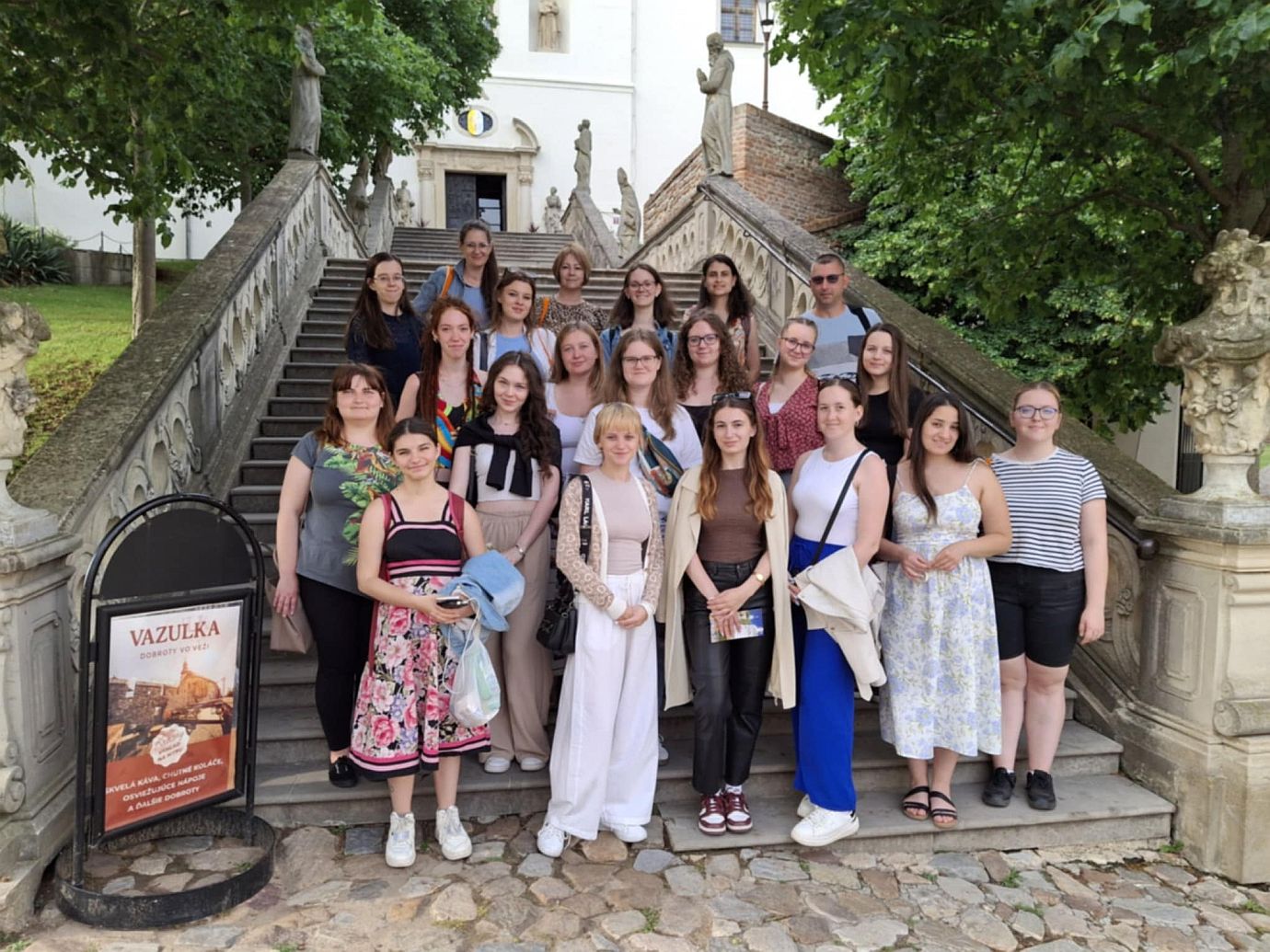
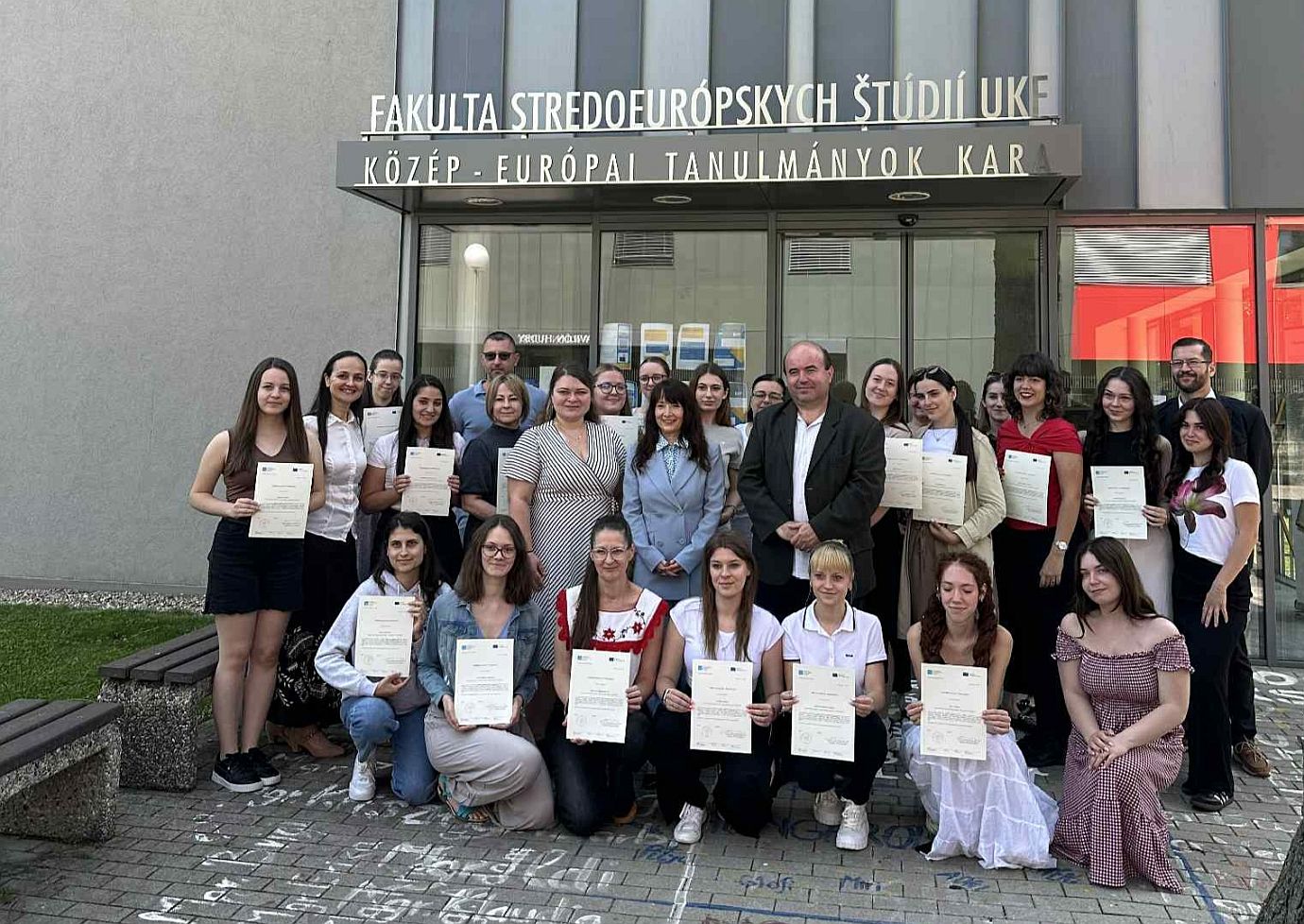
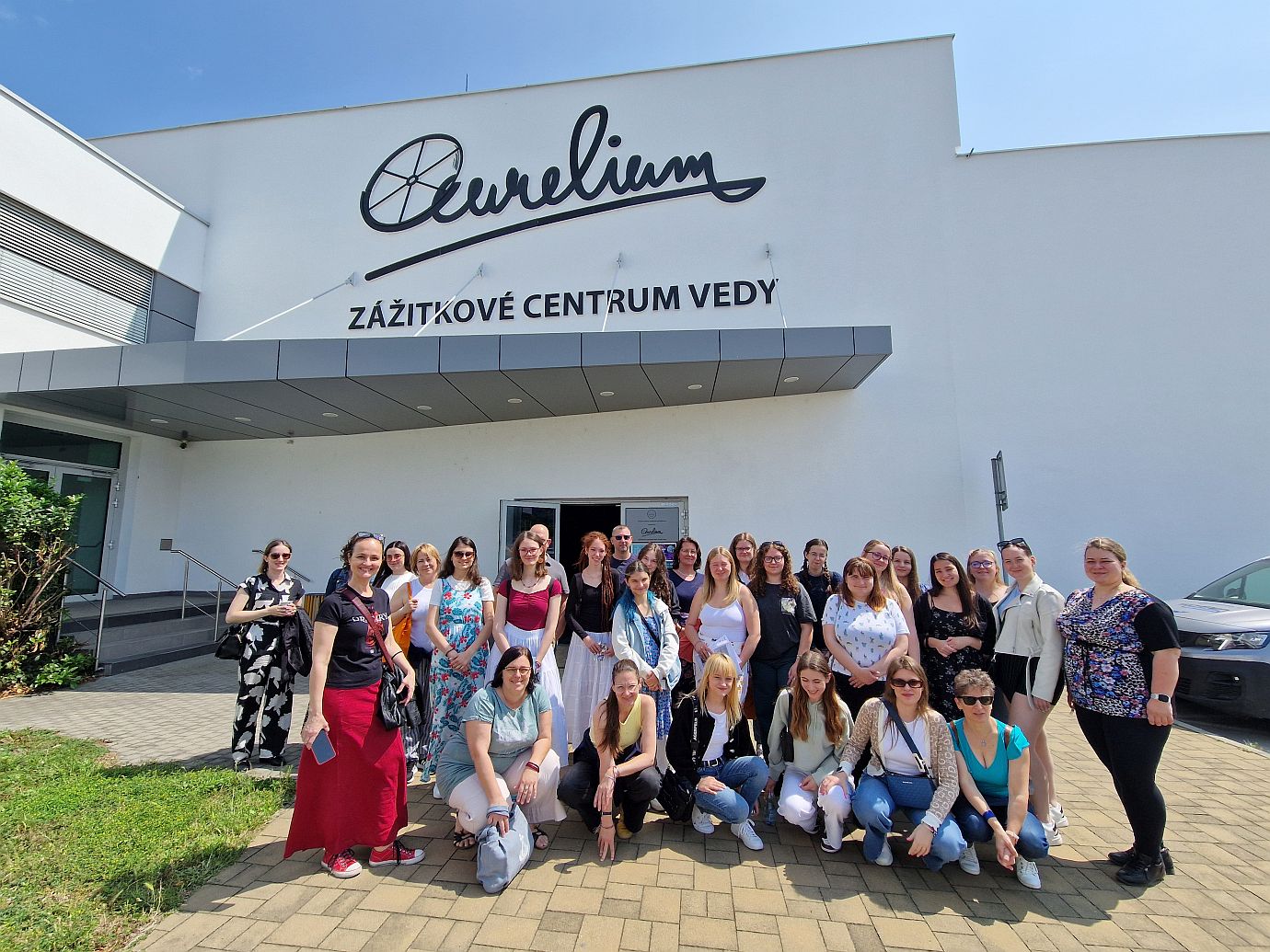
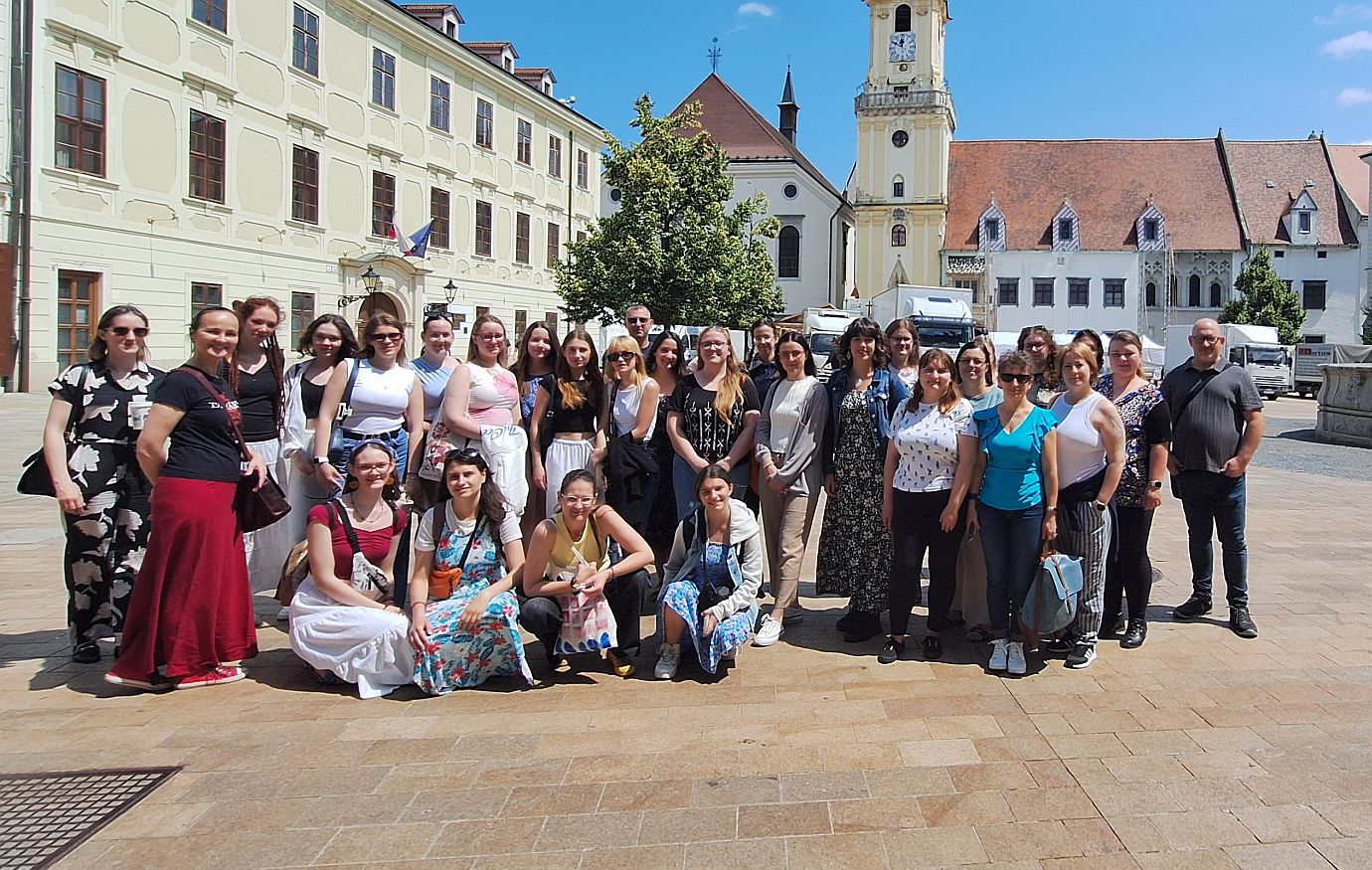
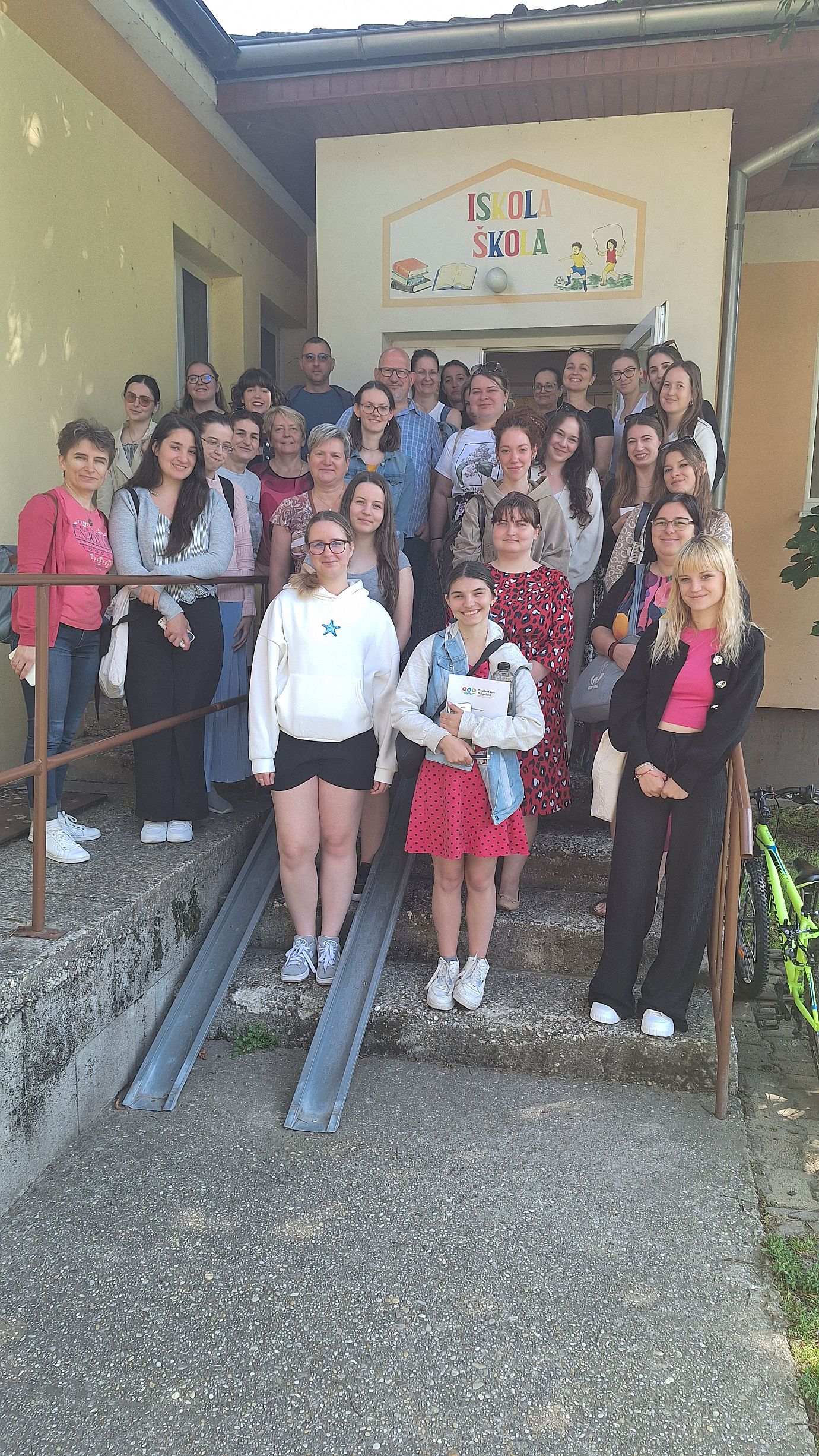
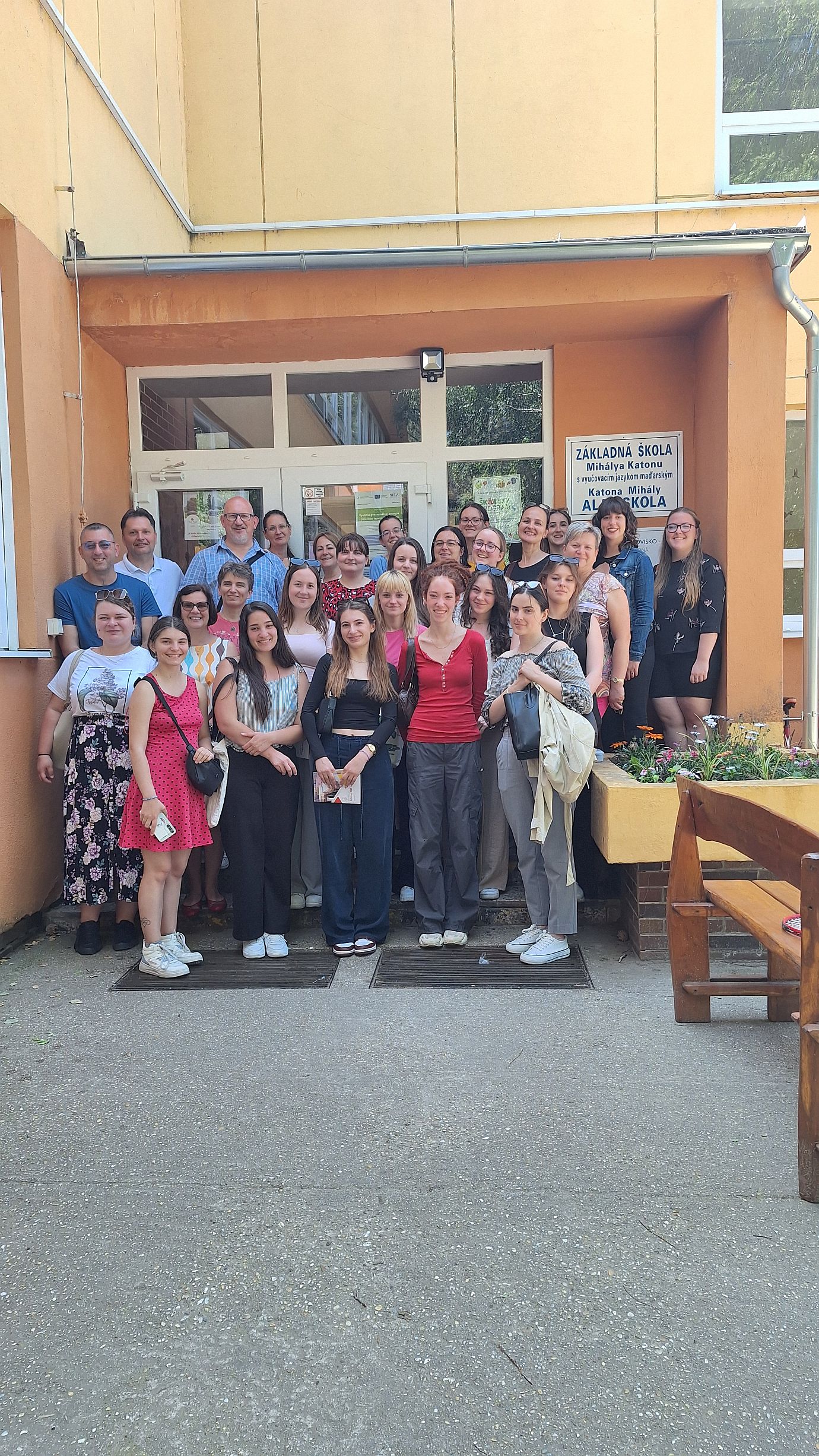
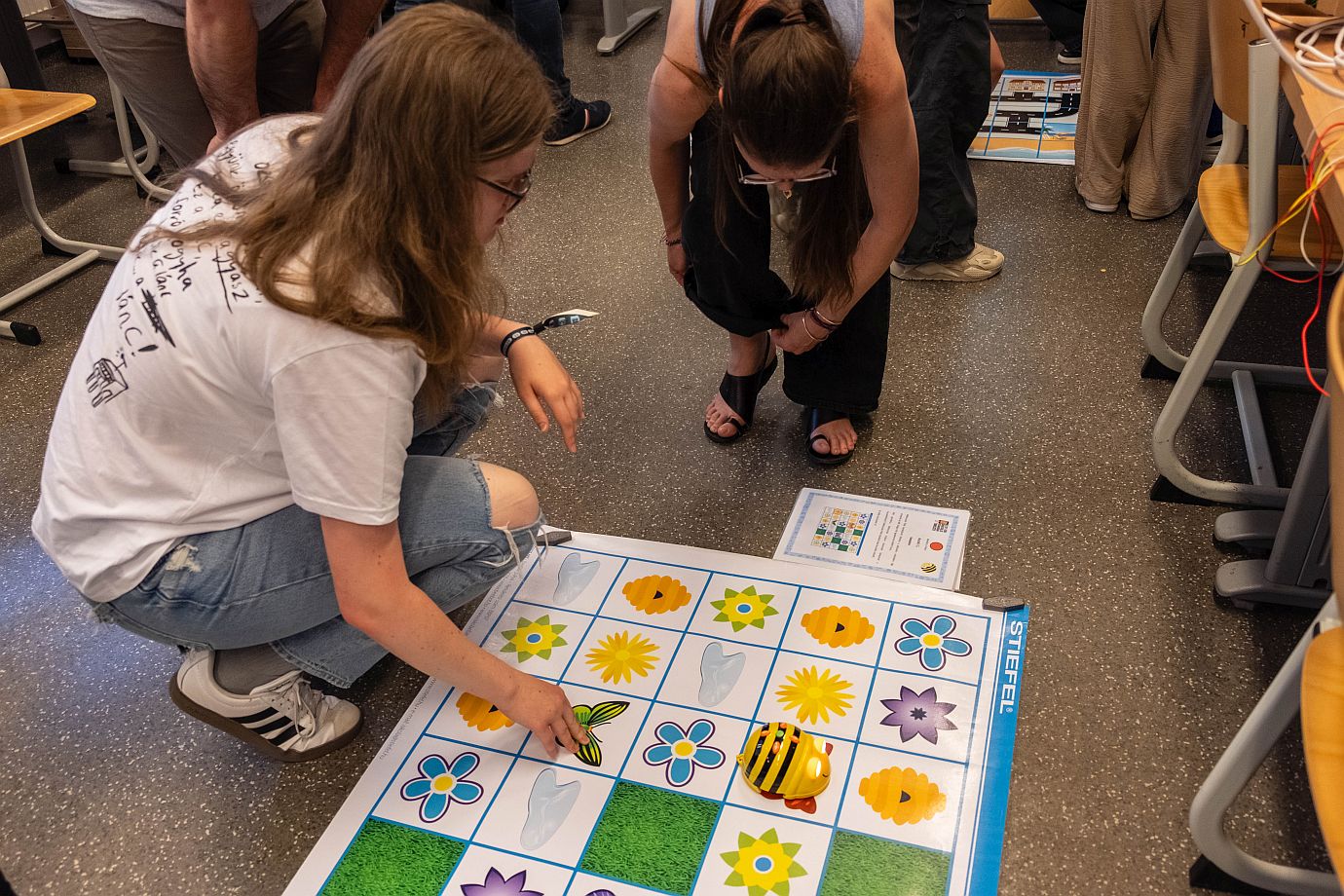
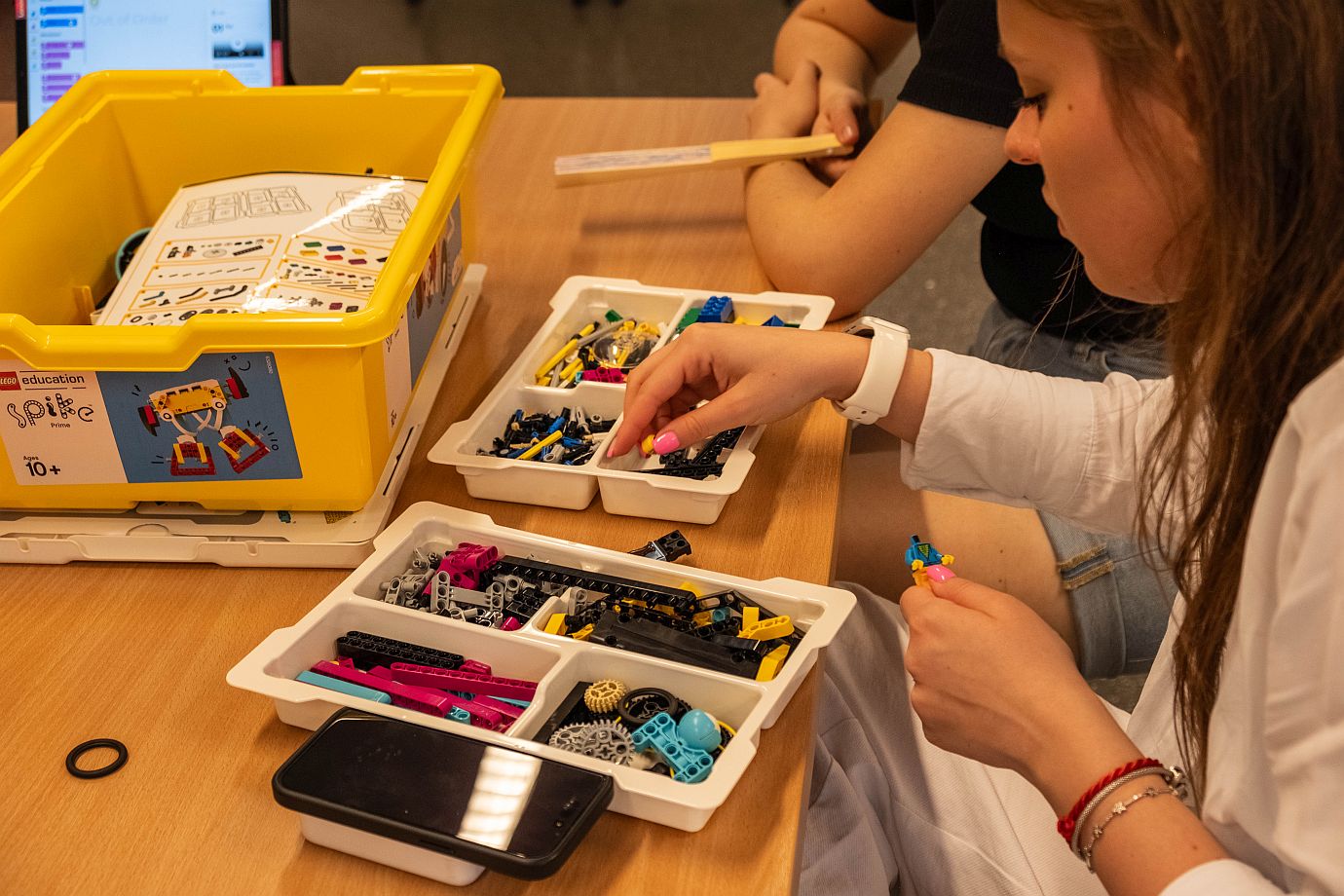
Text: Viktória Gergely and Orsolya Hegedűs
Photos: Faculty of Central European Studies BIP archive
Lecturers from the Faculty of Central European Studies Presented at an International Conference of Slavic Studies
Between 2–4 June 2025, the 6th edition of the international Slavic congress GranaSlavic was held at the University of Granada, organized by the Departmental Section of Slavic Philology and the Centre for Slavic Cultures.
Over the years, the GranaSlavic conference has become one of the most significant international forums for researchers in various branches of Slavic studies. This year, nearly 300 presenters from numerous countries participated across five thematic sections, sharing the latest findings from their scholarly and research activities. The opening of the conference was followed by a keynote lecture from the renowned Russian author Mikhail Shishkin, residing in Switzerland. In his lecture titled From Russian Literature to Literature in Russian, he emphasized the role of Russian-speaking writers in exile in shaping contemporary Russian literature. He critically addressed the current Russian regime’s cultural policy and drew parallels between the political, cultural, and literary context of Nazi Germany and that of present-day Russia.
The Faculty of Central European Studies was represented at the conference by Professor Ildikó Vančo, Associate Professor István Kozmács, and second-year PhD student Anna Oros Bugár, who all contributed as presenters.
Their participation was part of the two-year project of the faculty aimed at improving the training of future teachers of Slovak as a second language. They contributed with two presentations to the English-language section titled Didactics of Slavic Languages. As the first step of the project Preparation of Future Teachers of Slovak Language and Slovak Literature for Educational Practice in Schools with Hungarian as the Language of Instruction, a nationwide survey was conducted during the 2024/25 academic year in lower primary grades of Hungarian-medium elementary schools in Slovakia.
In their presentation Is Teaching a State Language Teaching a Foreign Language? Rethinking Slovak Language Education for Minorities, Anna Oros Bugár and Ildikó Vančo introduced the project’s aims and presented the findings of the attitude survey focusing on young pupils’ perceptions of the Slovak language. Subsequently, in their presentation The Challenges of Teaching Slovak to the Hungarian Minority in Slovakia, Ildikó Vančo and István Kozmács summarized key insights drawn from the in-depth analysis of students’ written productions in Slovak language.
The two presentations were met with great interest from the audience, and the closing discussion of the session raised further questions regarding the status of linguistic minorities in Slovakia.
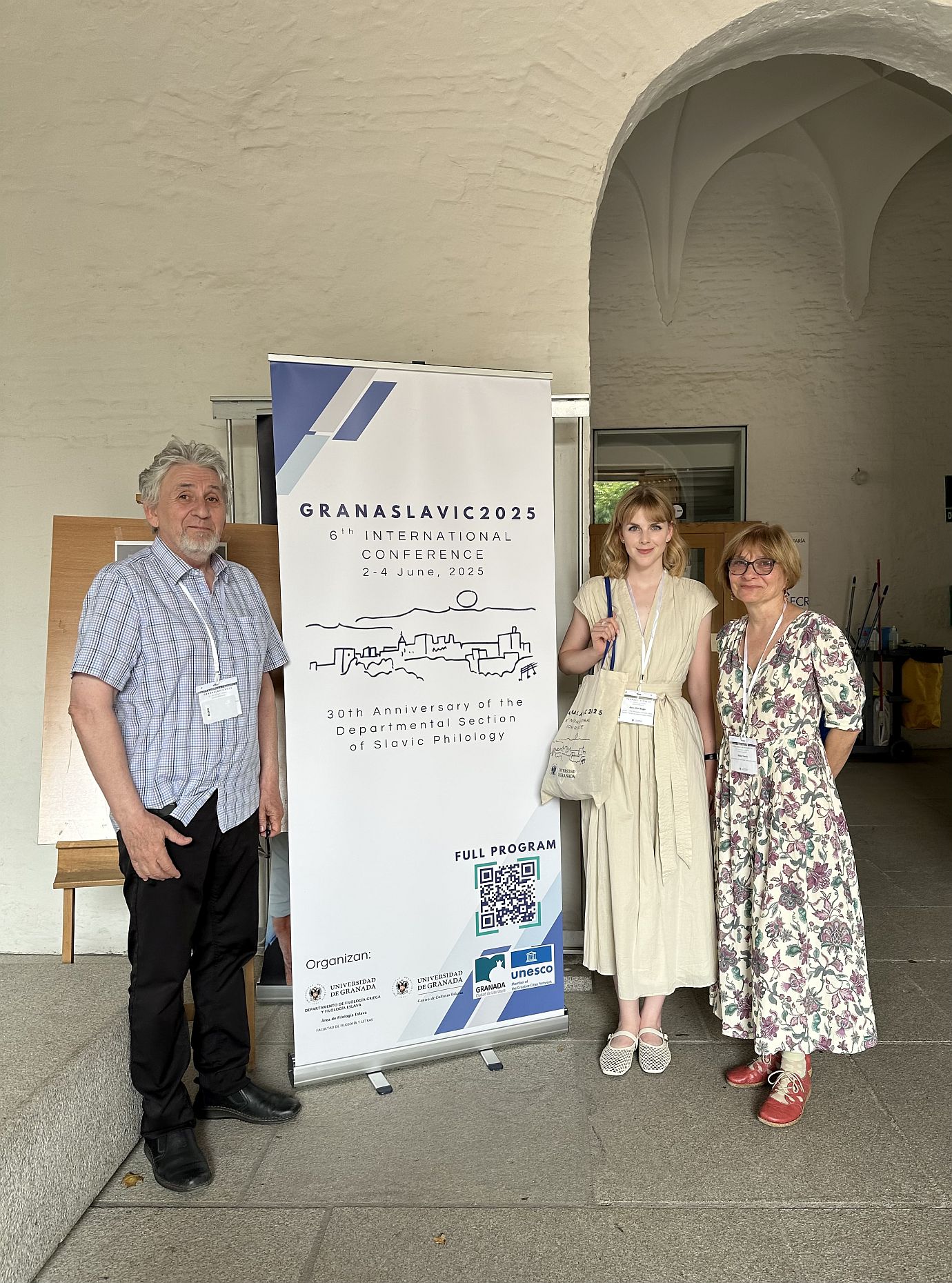
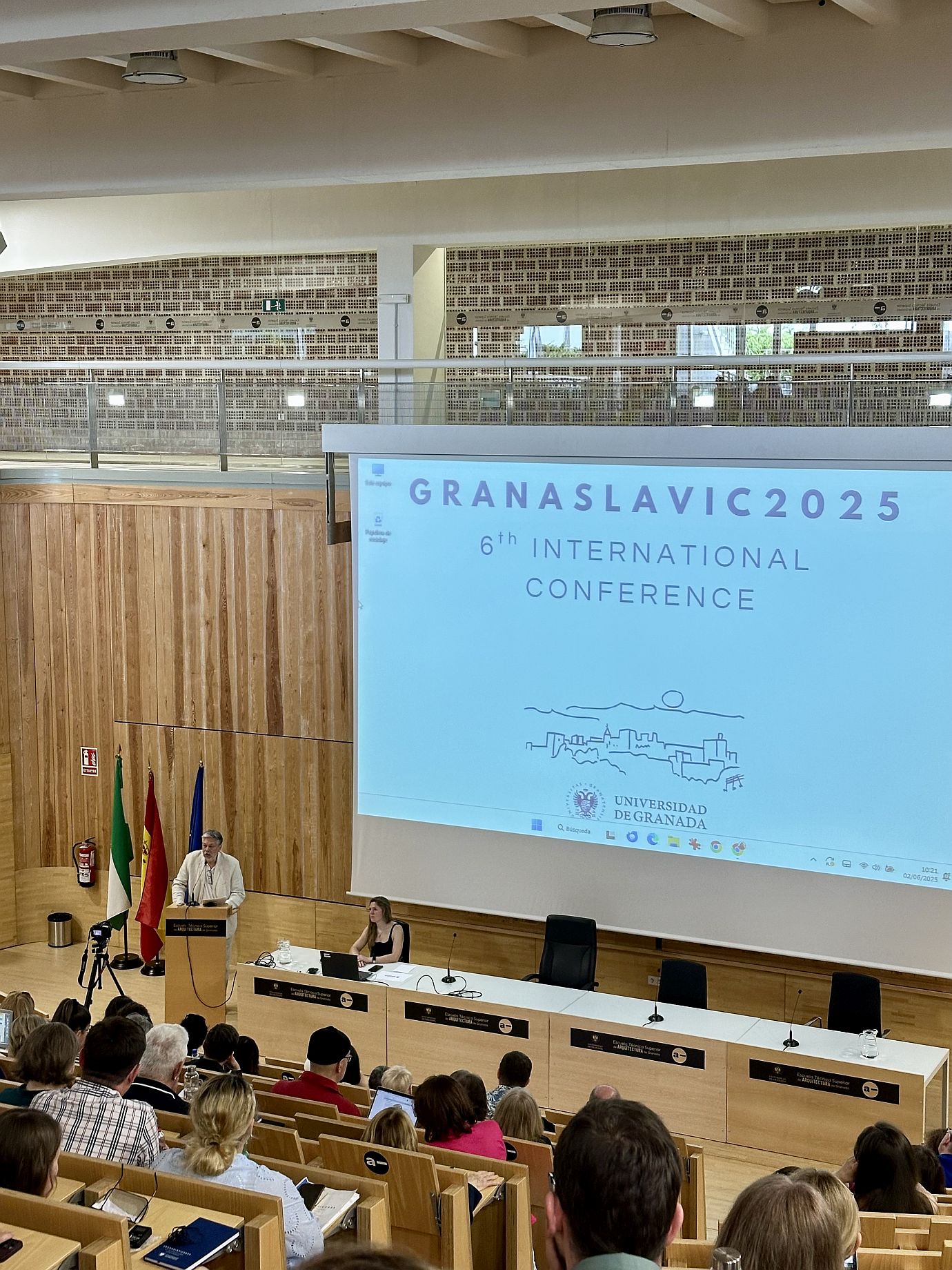
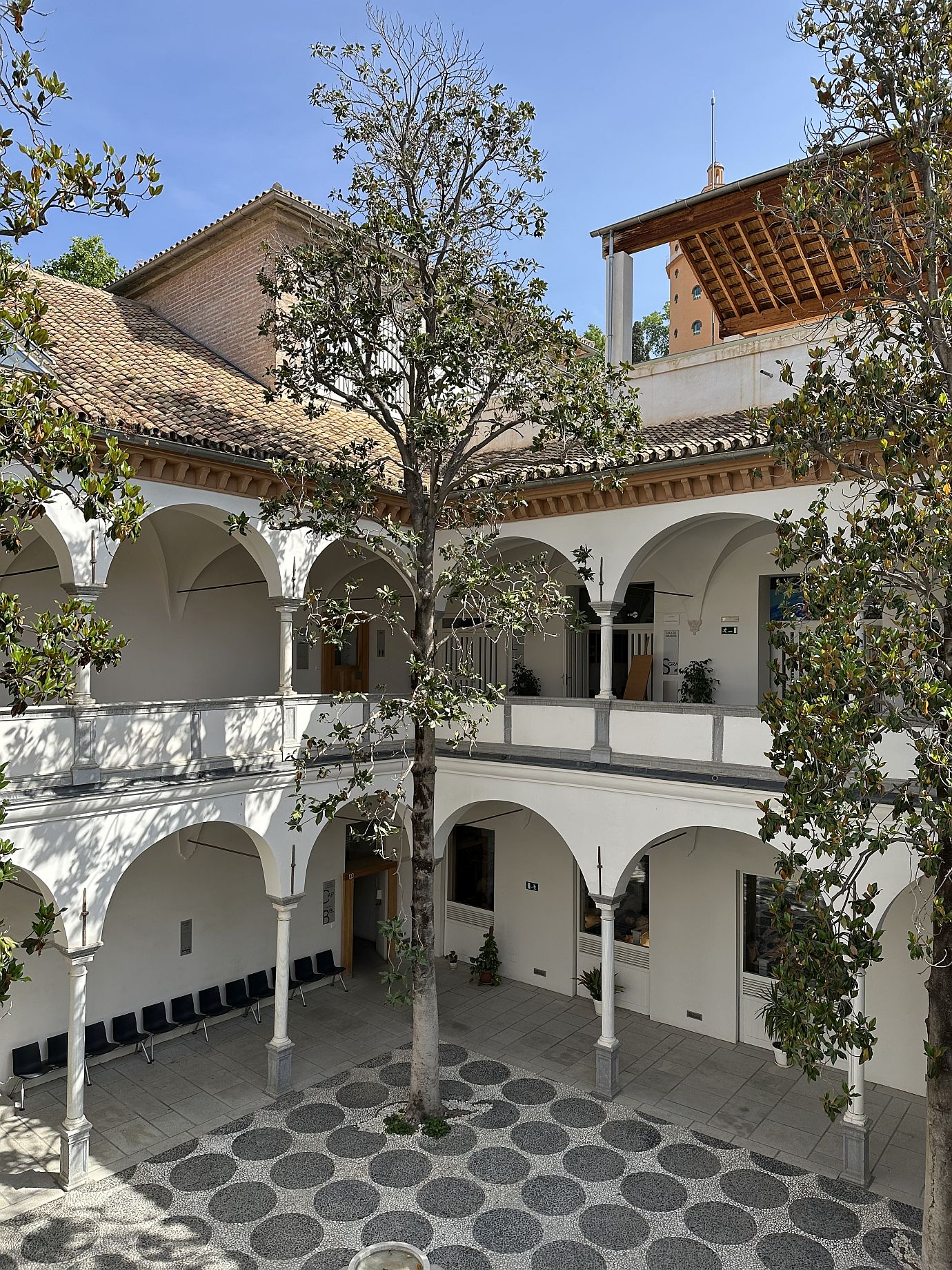
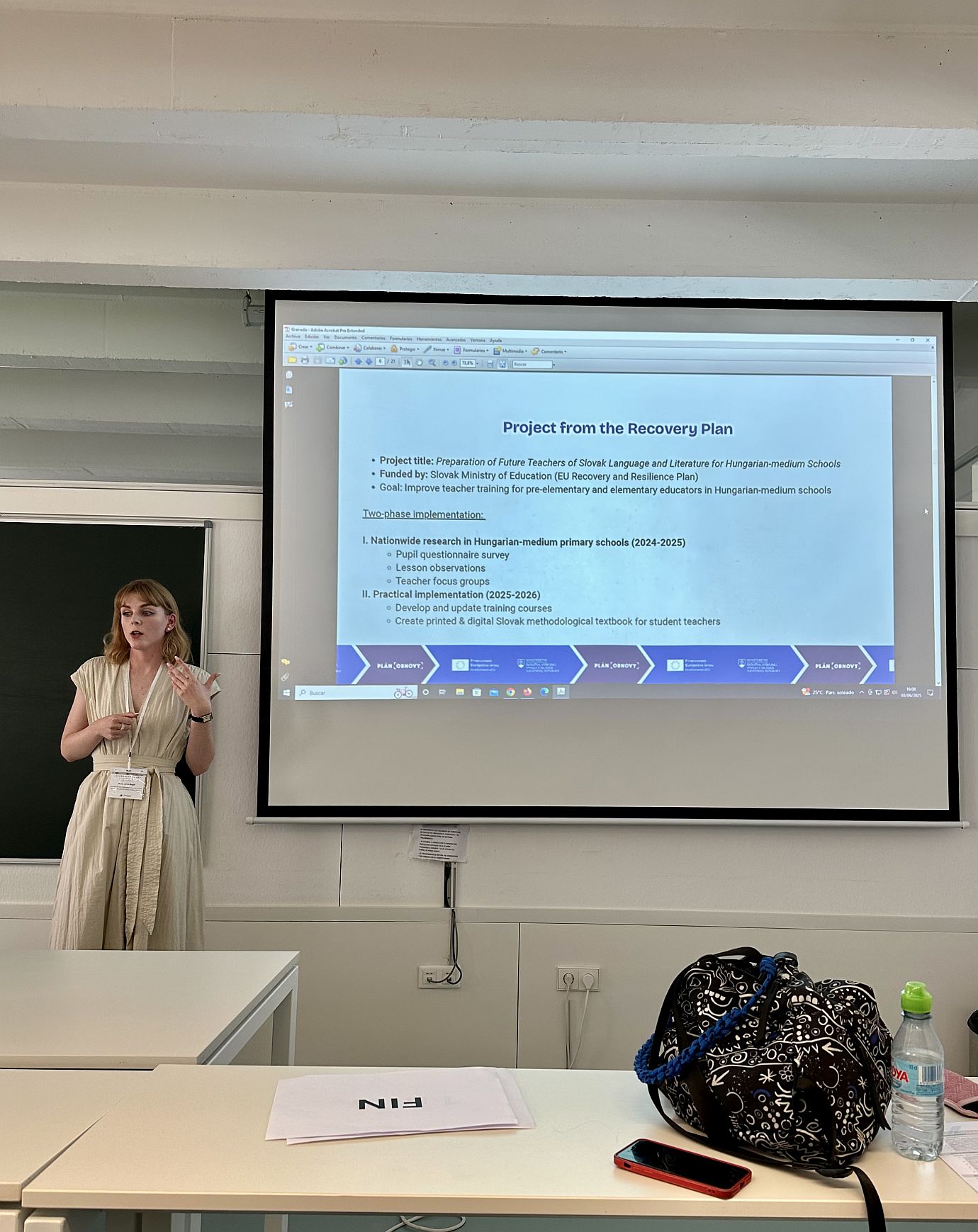
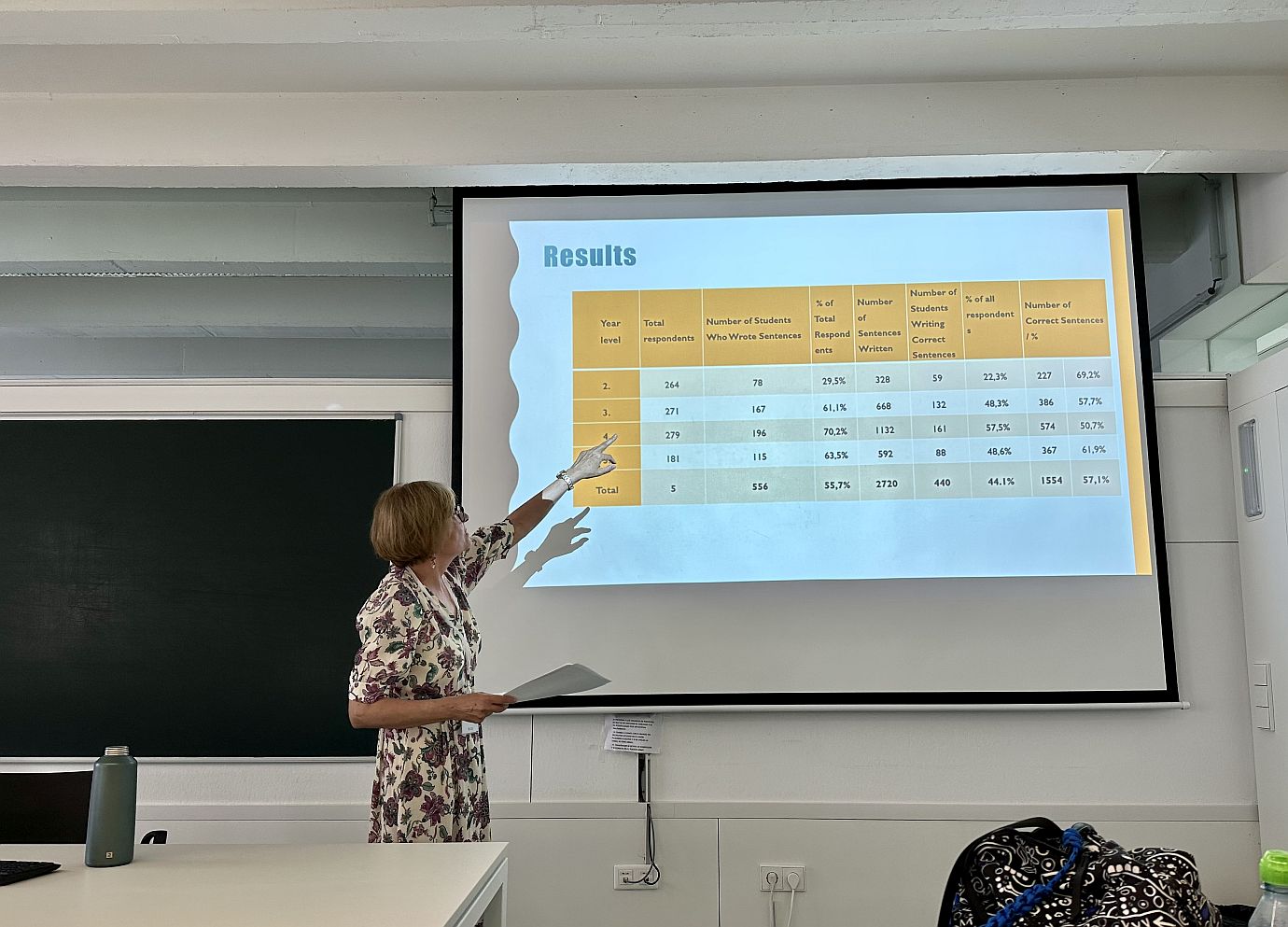
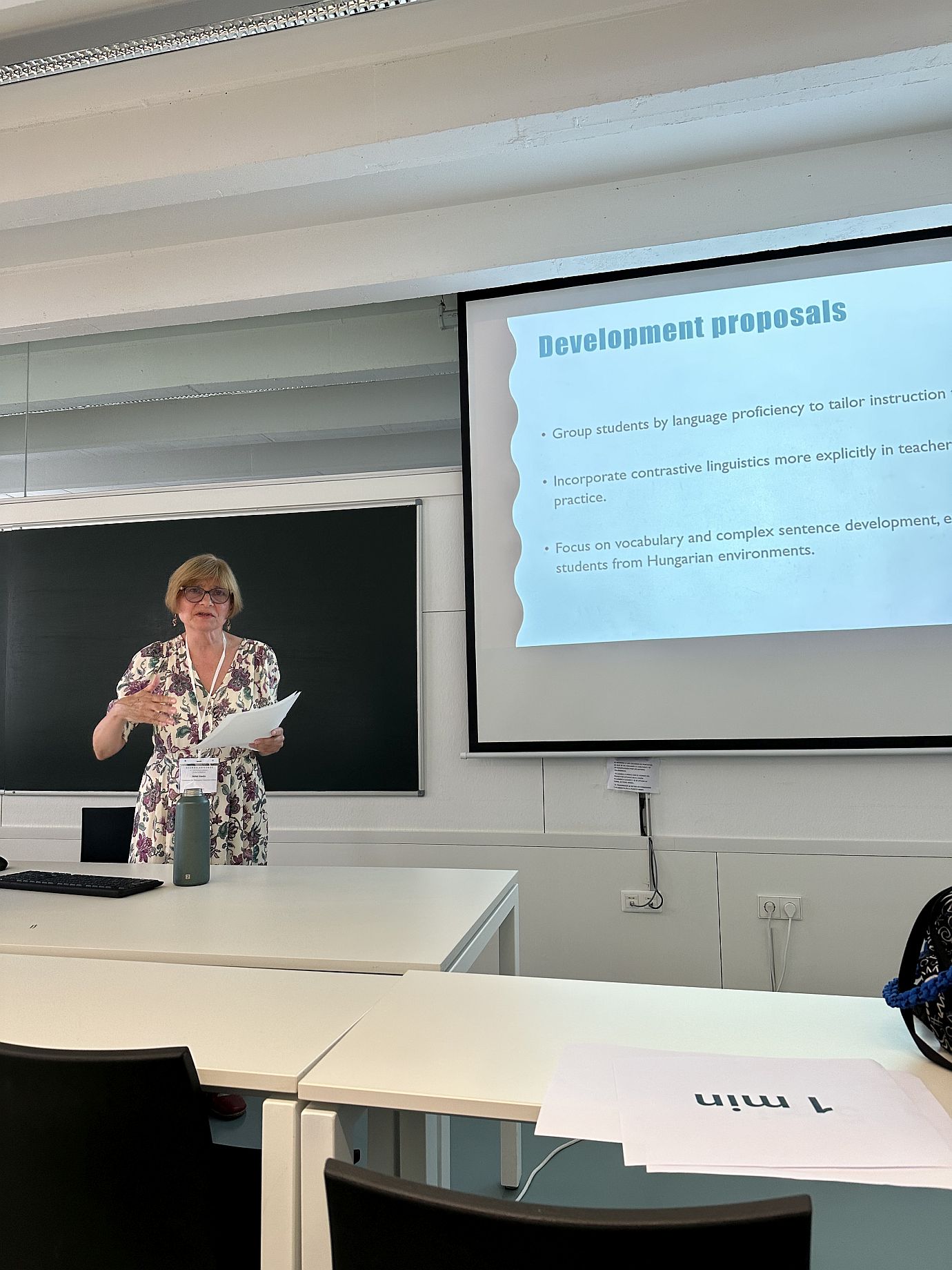
-aob-
Introduction of the Constantine the Philosopher University in Nitra at the 200th anniversary celebrations of the Hungarian Academy of Sciences
As part of the 200th anniversary celebrations of the Hungarian Academy of Sciences (MTA), May 2025 has become the opportunity of introduction for Hungarian scientific institutes and organisations from outside the borders of Hungary. As part of the celebrations, the Faculty of Central European Studies of the Constantine the Philosopher University in Nitra has introduced itself at the MTA’s headquarters on the 26-27th of May, in the framework of a two-day event series. For decades, our faculty has been one of the most important centres of Hungarian university education in Slovakia, as well as a key institution for preserving Hungarian scientific and cultural identity outside Hungary.
The aim of the event was to provide the professional audience from both within and outside Hungary, as well as the interested public, with a comprehensive overview of the Faculty’s scientific, educational and cultural activities. Over the course of two days, three faculty institutions – the Institute of the Hungarian Language and Literary Science, the Department of Tourism and the Institute of the Education of Teachers – presented their teaching activities, research, professional achievements, innovations and community involvement in various formats.
Science and community in focus
On the opening day of the event on the 26th of May, the Institute of the Hungarian Language and Literary Science gave a comprehensive professional presentation.
First, the Institute's linguistic research was presented, ranging from programmes supported by the Hungarian Academy of Sciences to current language management issues in Hungarian-Slovak bilingualism, terminology work and international research collaborations. This was followed by a presentation of the Institute's research in the field of literary studies, including transculturality, which is not only a research focus but also an inspiration for methodological innovations, theoretical frameworks and creative writing. During the afternoon, the Institute's doctoral study programme was also introduced, with former students sharing their experiences and current PhD students presenting their research topics. The presentation of publications and journals deserves special attention: the Institute's teachers displayed a considerable amount of professional material, both in their presentations and in its physical form – through journals and textbooks exhibited on site. This rich material and its presentation also indicate the Department's decisive role in Hungarian minority education, Hungarian mother tongue teaching, and in Hungarian and international academic life.
During the afternoon, a writers and readers meet-and-greet session also gave the public the opportunity to discover the creative writing of the Institute's literary staff. The discussion highlighted the importance of the interconnection between living literature and university education. The day concluded with a unique and innovative literary board game, which can also be used as a methodological tool for teaching literature.
On the 27th of May, the introduction of the Institute continued, with the audience able to learn about the scientific results of the Institute's teachers, that can be applied in public education, and about innovations in literary and language pedagogical methodology.
Afterwards, the staff of the Department of Tourism presented the professional profile of their department through topical themes, including new digital learning environments, the role of language and intercultural competences in tourism, and the economic impact and development potential of tourism.
Representatives from the Institute for Teacher Training presented their wide range of work, from modern experiential approaches to health and environmental education and to the development of digital competences through robotics.
As a fitting conclusion to the two-day programme, the decades-long history of the faculty’s Hungarian choir was brought to life through a video of archival footage and recollections, along with a musical insight into the legacy of Zoltán Kodály, a renowned Hungarian composer and educator. The final performance featured instrumental solos by members of the university choir, evoking the rich musical tradition that remains one of the most cherished legacies of Hungarian teacher training in Nitra.
Together in the Hungarian scientific community
The introduction of the Faculty of Central European Studies at the Constantine the Philosopher University in Nitra, organised and managed with precision and care by Professor Ildikó Vančo, was an excellent opportunity for the Faculty to show how Hungarian higher education outside Hungary’s borders can both preserve its values and respond to the challenges of the 21st century. The lectures, presentations and reflections over the two days were not only an academic experience but also a community experience, contributing to a particularly valuable chapter of the MTA’s jubilee year.
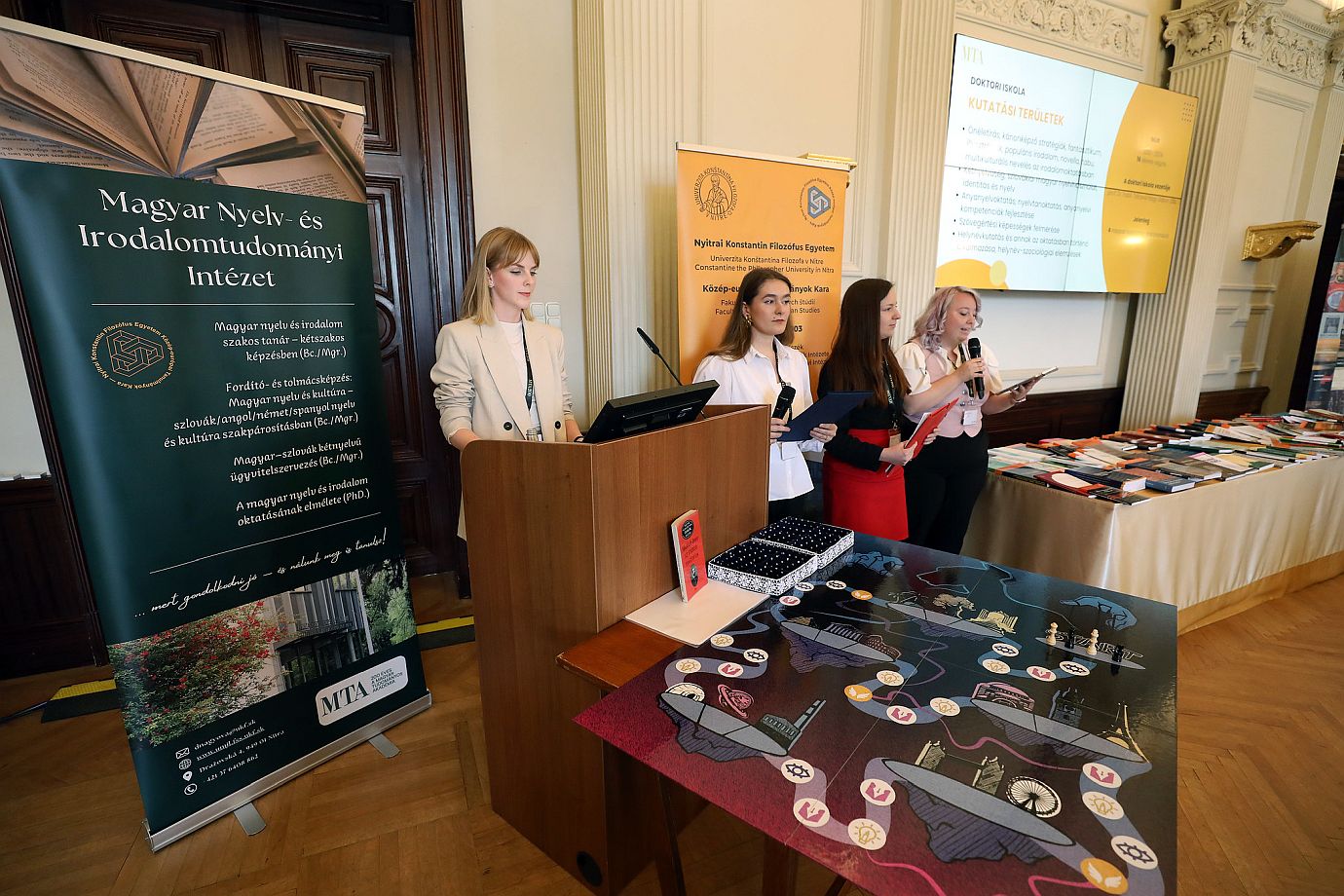
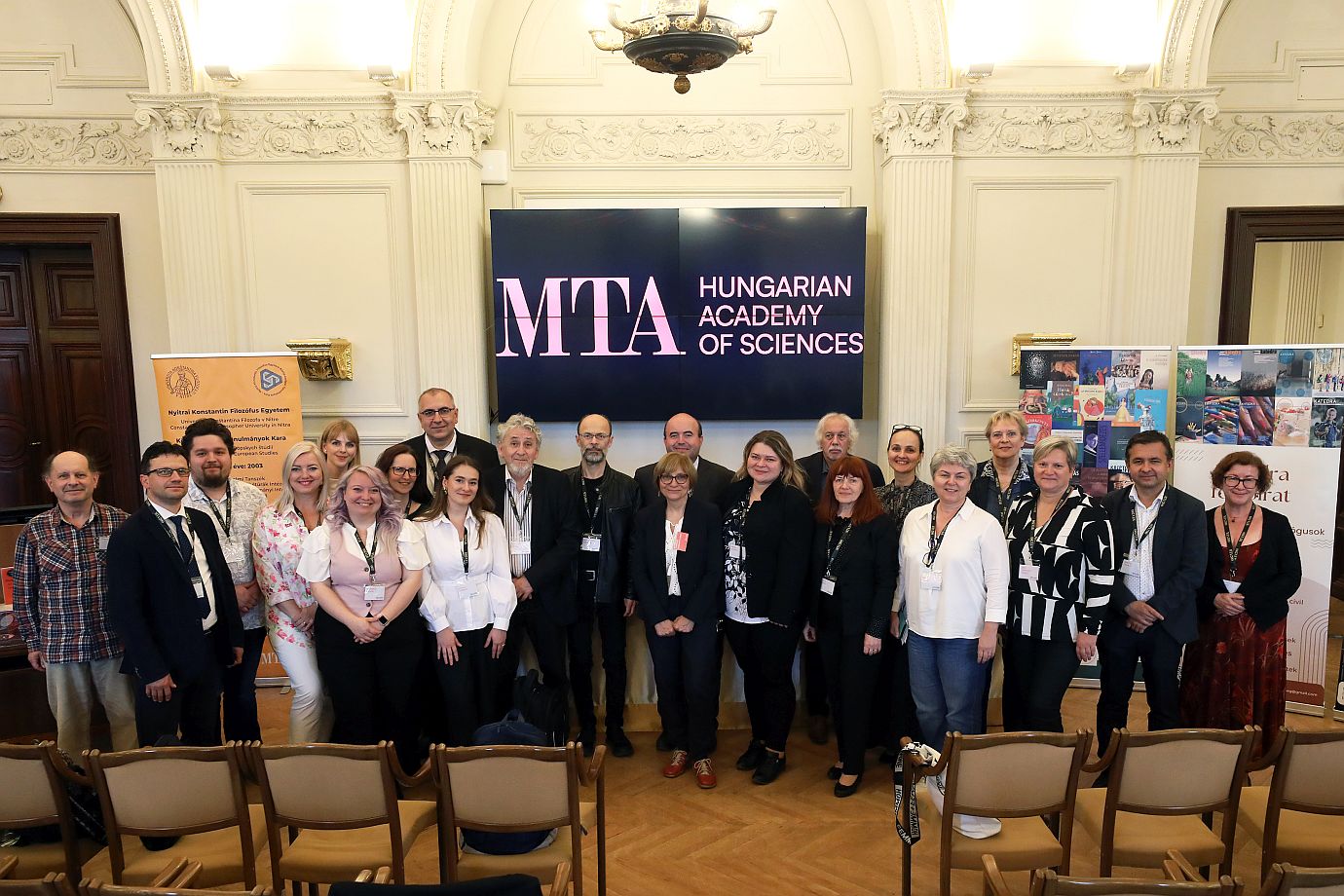
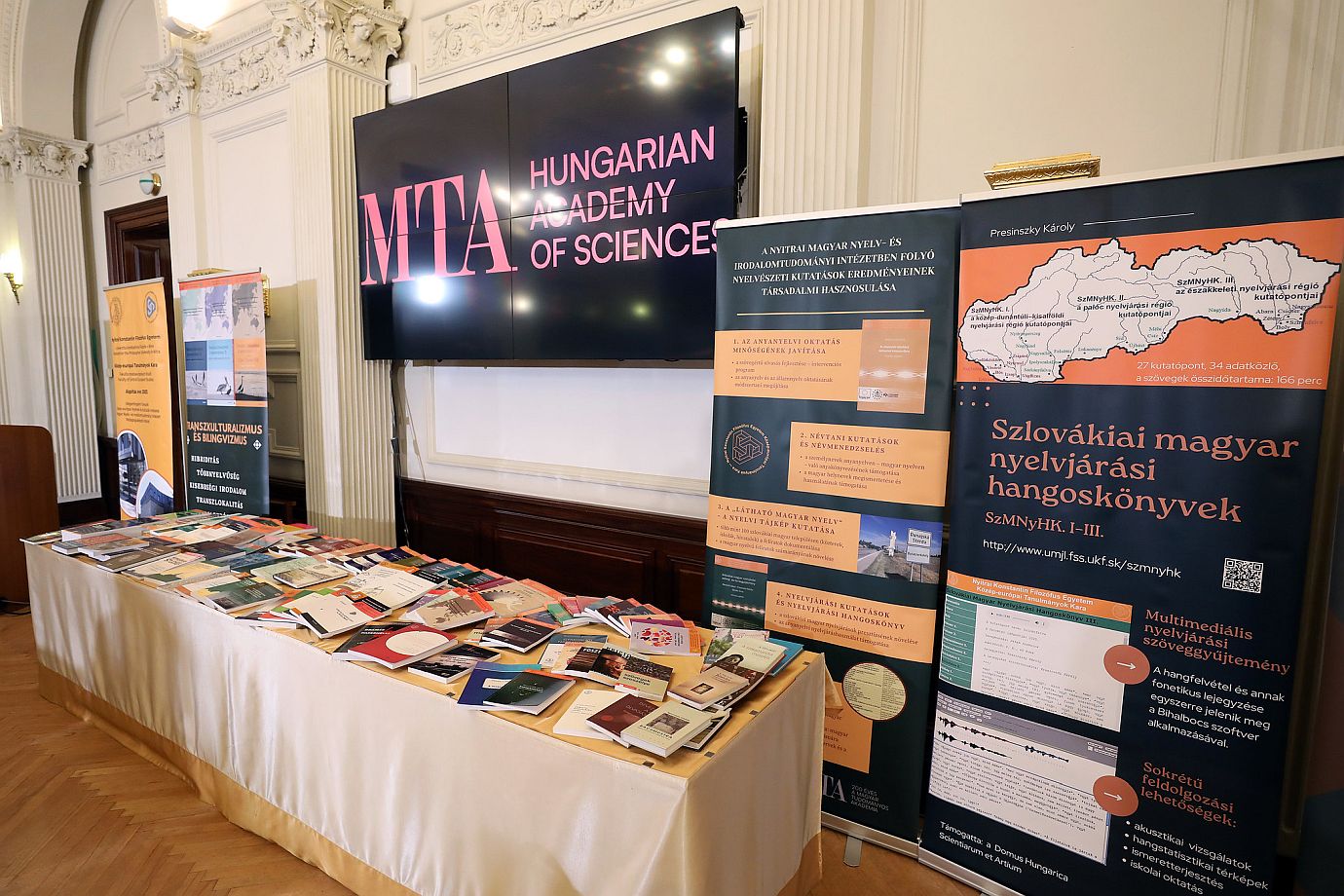
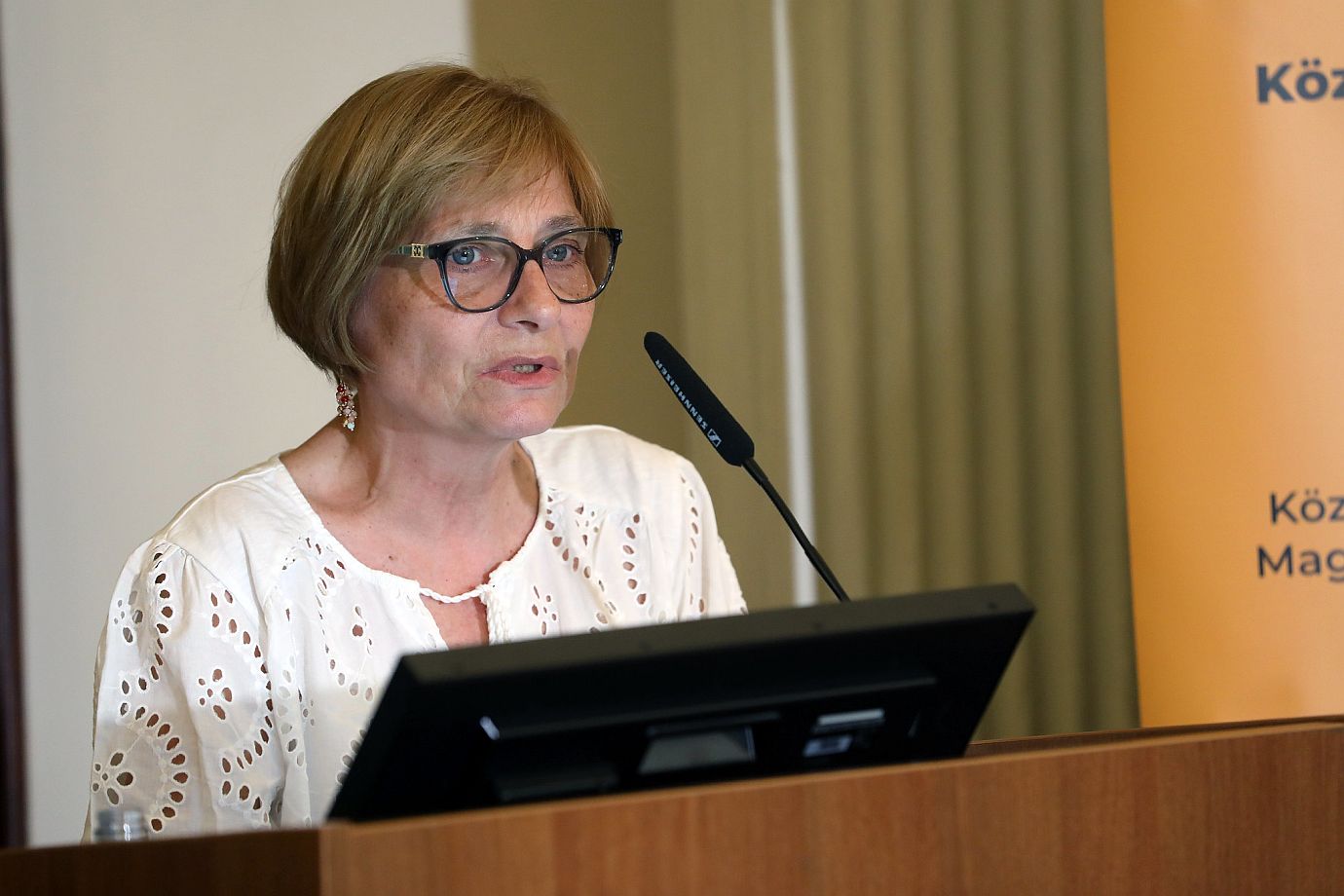

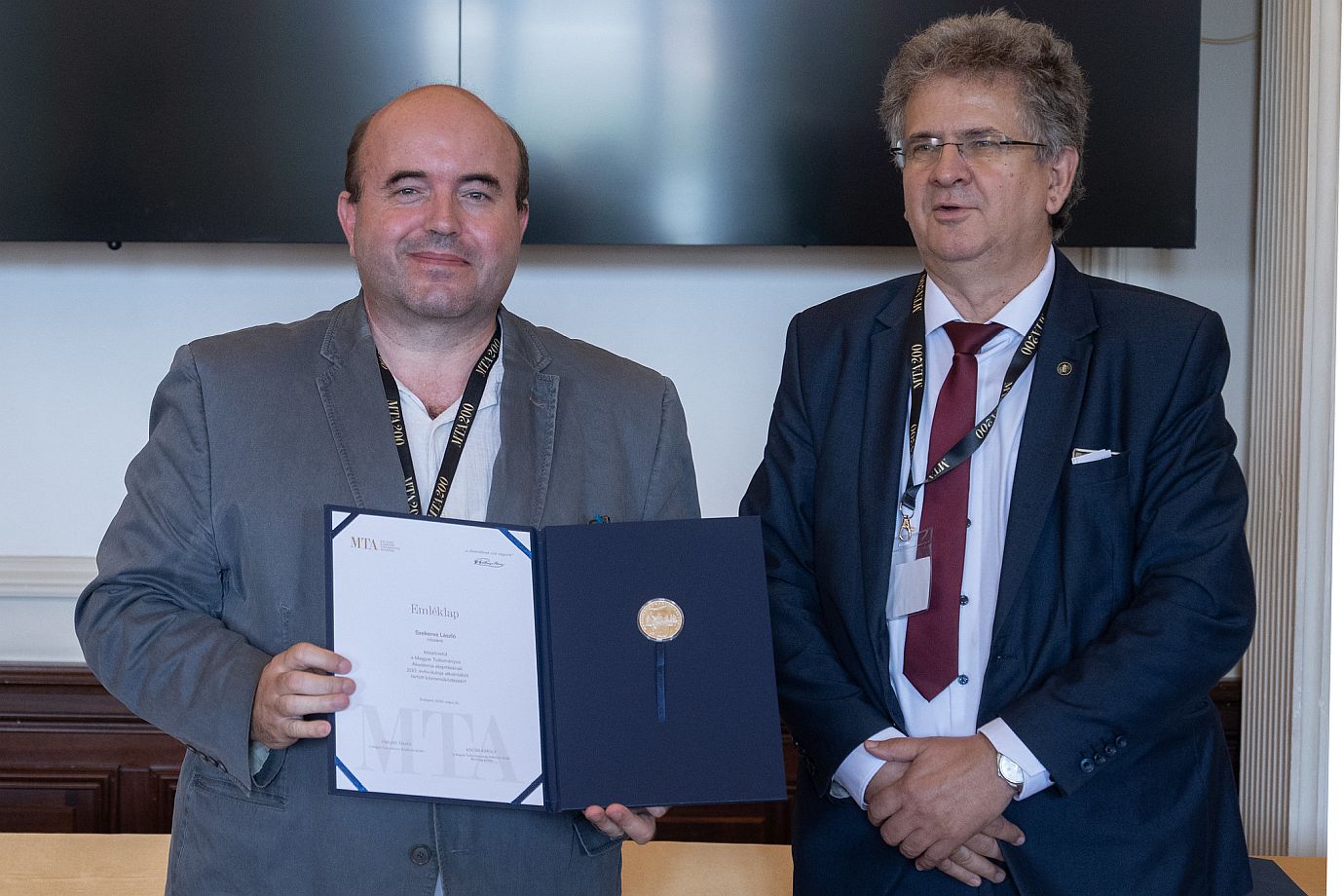
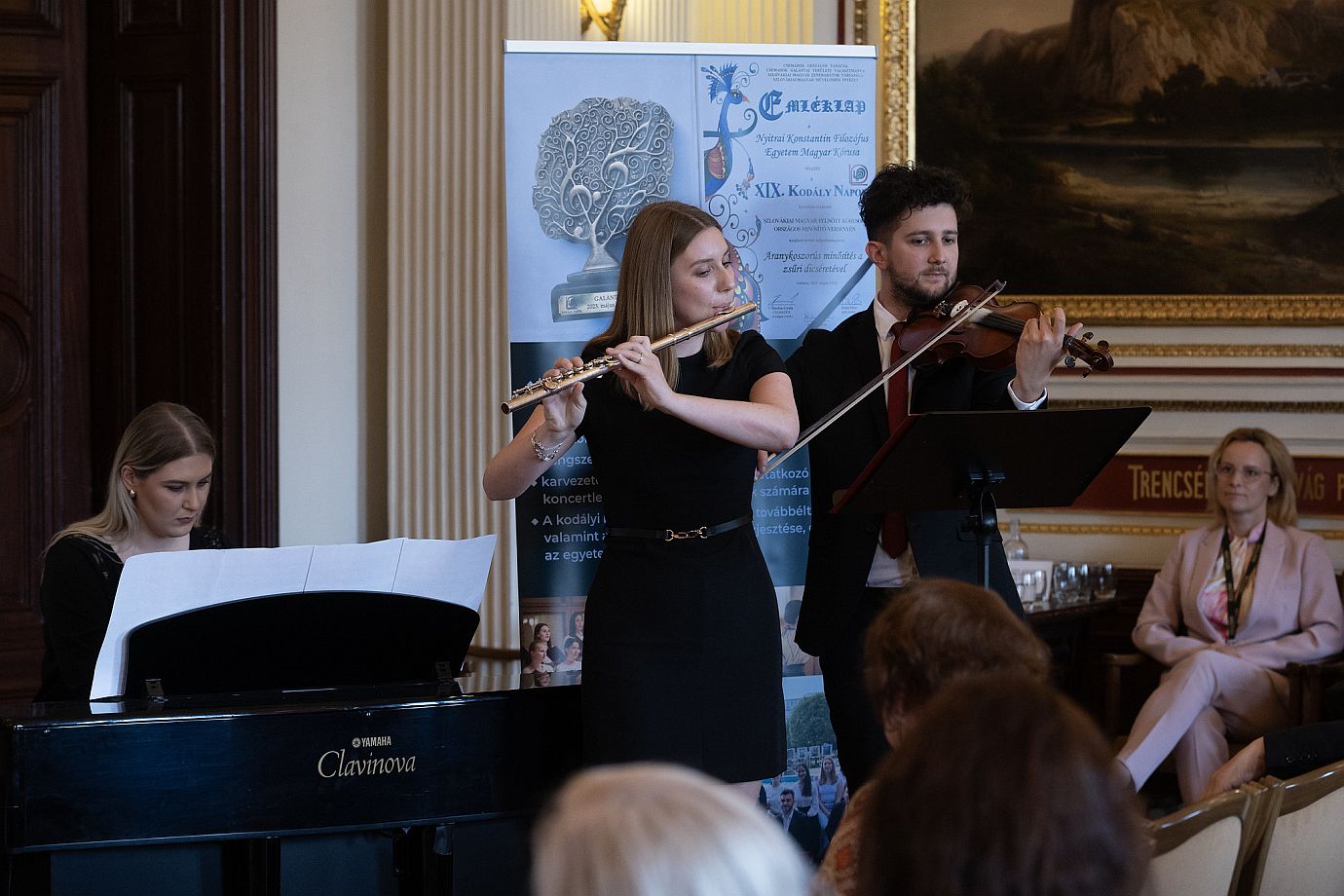
Mgr. Anna Oros Bugár, Mgr. Patrícia Kovács
Participation at the 11th International Conference on Pluricentric Languages (WGNDV 2025)
The 11th International Conference on Pluricentric Languages and their Non-Dominant Varieties was held in Lisbon from 22 to 24 May 2025, under the title Pluricentric Languages and Power: At the Crossroads of Legacies. This year’s event was organised by the research centres of Iscte – University Institute of Lisbon and the University of Coimbra.
Serving as the leading international forum for research on pluricentric languages and their non-dominant varieties for over a decade, the conference series was initiated by Rudolf Muhr in 2010. As the founder of the International Working Group on Non-Dominant Varieties of Pluricentric Languages (WGNDV), Muhr has played a pivotal role in shaping global linguistic research in this field. Since its inception, the group has regularly hosted conferences in various locations, including Nitra in 2018, where Professor Ildikó Vančo served as the lead organiser.
The Constantine the Philosopher University in Nitra was represented at this year’s conference by Prof. Mgr. Ildikó Vančo, PhD., Dr. habil. István Kozmács, PhD., and second-year PhD student Mgr. Anna Oros Bugár, all affiliated with the Institute of Hungarian Linguistics and Literary Science of the Faculty of Central European Studies. Their presentations showcased their most recent research on linguistic attitudes related to the Hungarian language varieties spoken in Slovakia.
In their presentation titled Linguistic Attitudes of Primary School Children Toward Language Variants, István Kozmács and Ildikó Vančo introduced the results of a pioneering study that investigated the early development of linguistic prestige and stigmatization among lower primary school pupils. The research utilised a puppet story, followed by structured interviews, to explore children’s attitudes toward different language varieties.
Anna Oros Bugár and Ildikó Vančo presented their joint research in a presentation entitled Attitudes Toward Hungarian Variety in Slovakia Among Minority and Majority Students, which focused on a comprehensive comparative study involving minority Hungarian, majority Slovak, and Hungarian (from Hungary) secondary school students. Their presentation highlighted findings related to the intergroup social perception of the Hungarian variety used in Slovakia.
The conference offered a platform for vibrant discussions and debates, providing new perspectives on the role and prestige of non-dominant language varieties. These contributions further enriched the theoretical understanding of pluricentricity and its application across social, educational, and cultural contexts.

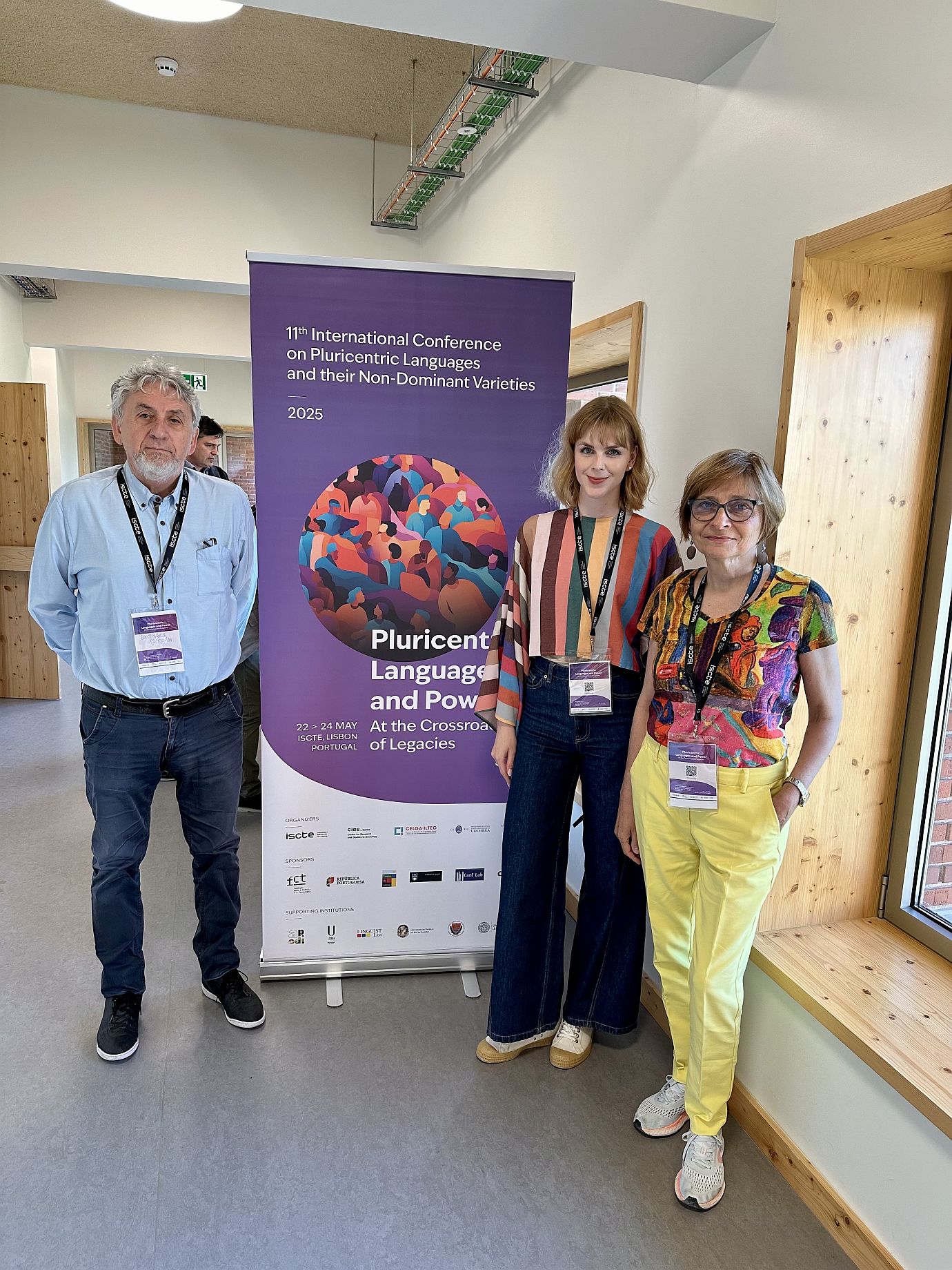
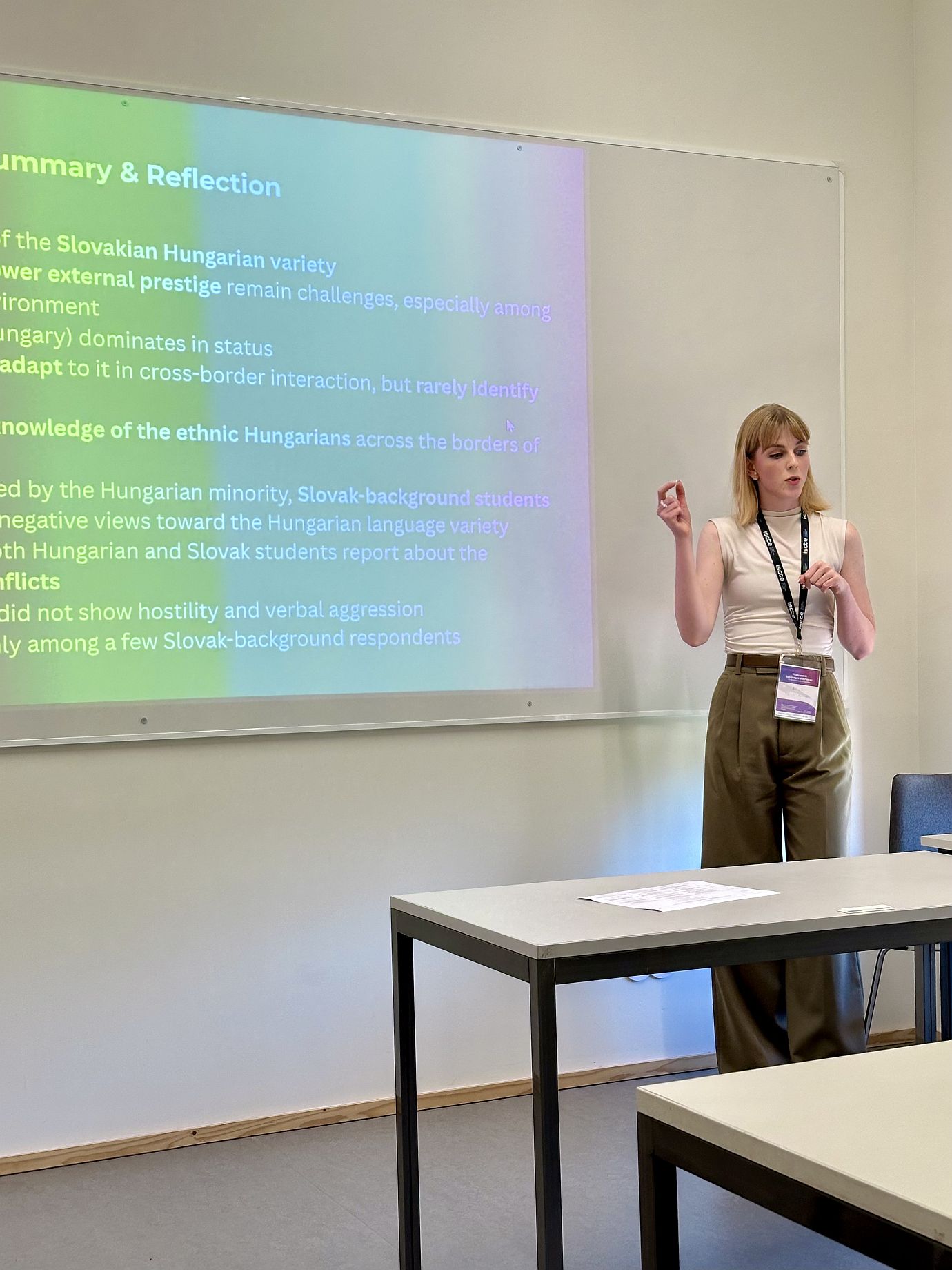
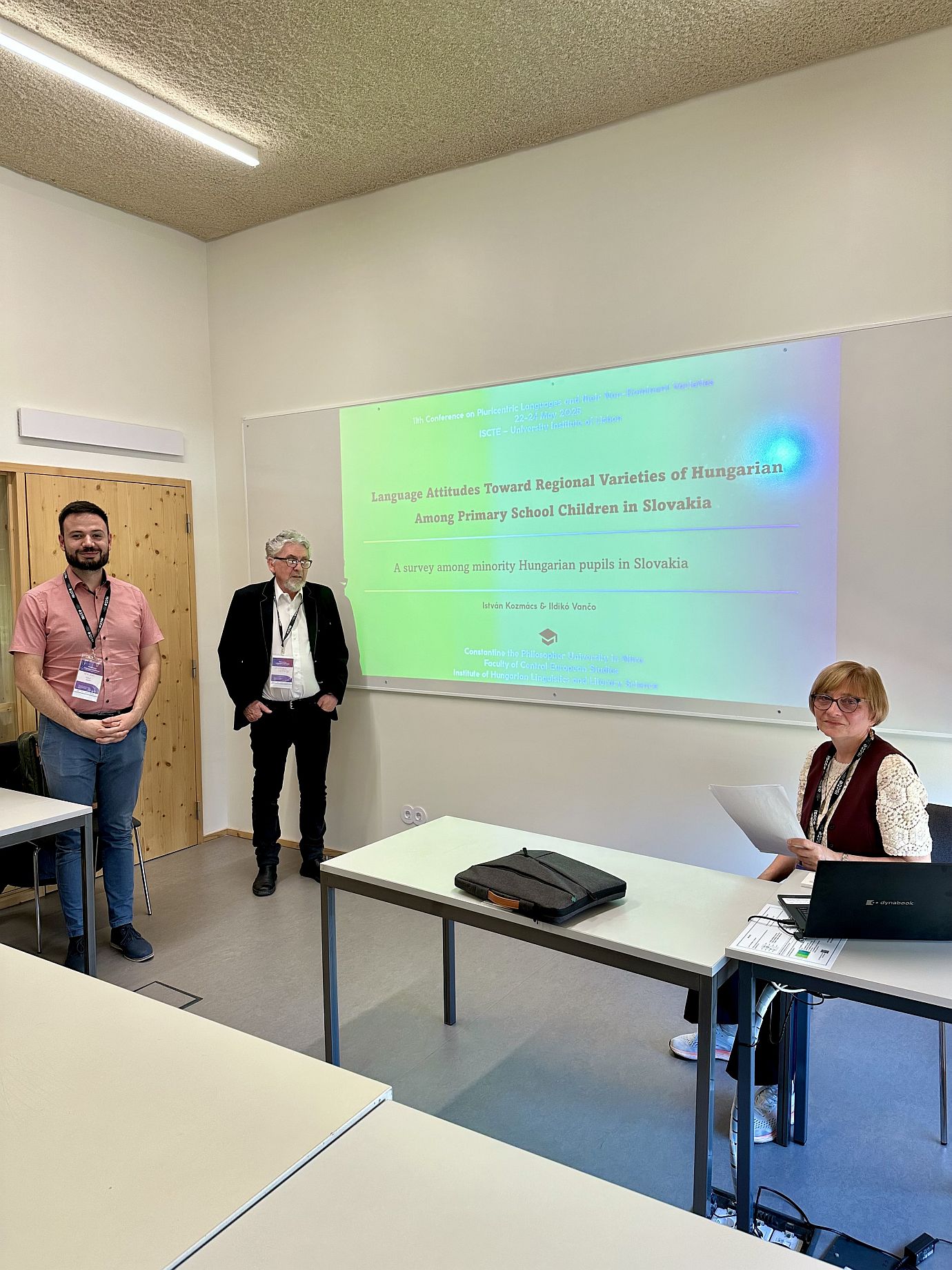
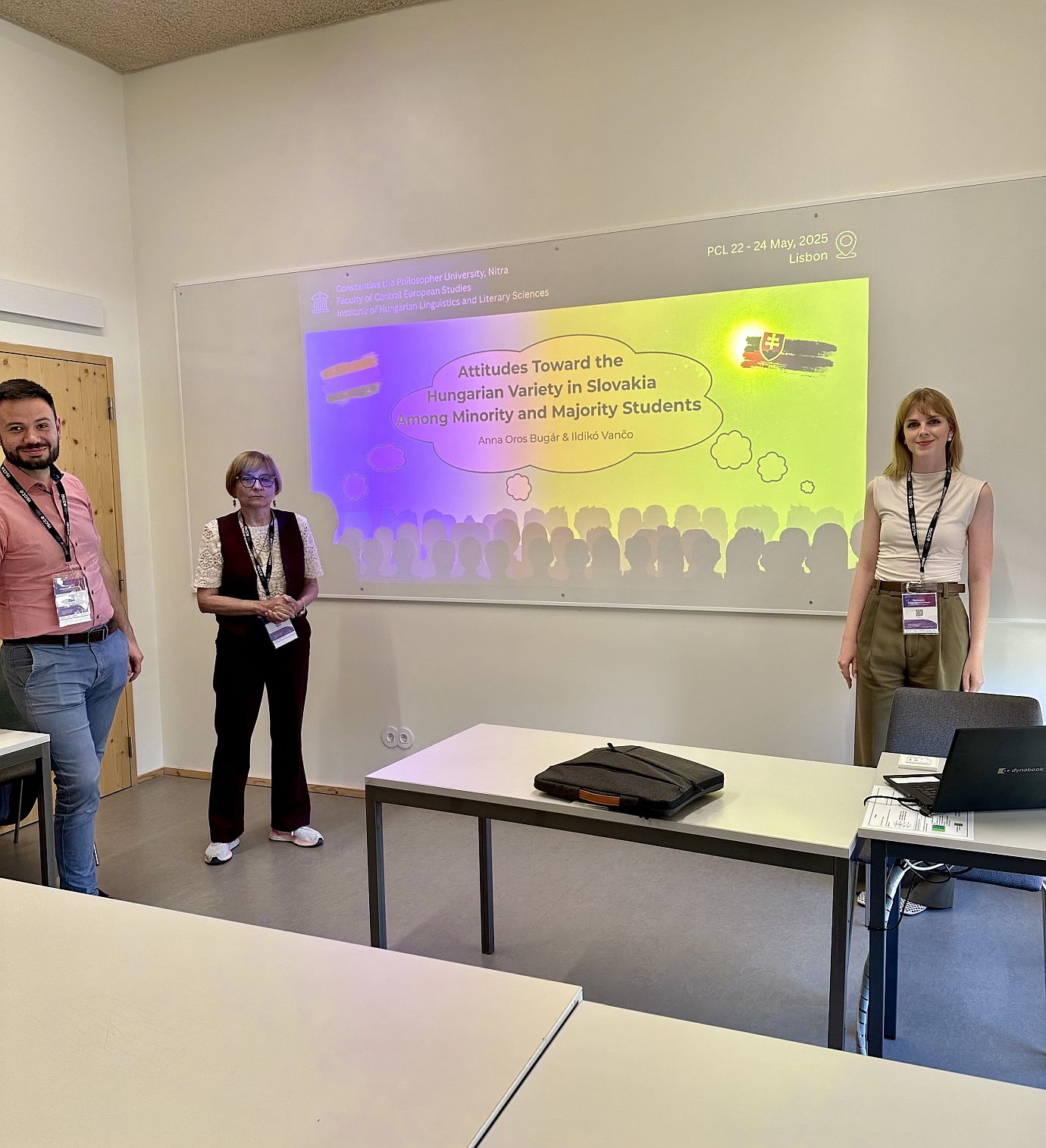
Author and photos: Anna Oros Bugár
Do You Know Your Neighbor? Get to Know Your Neighbor!: A Quiz that Connected and Educated
On May 7, 2025, the quiz Spoznaj svojho suseda (Get to Know Your Neighbor) took place at the Faculty of Central European Studies, Constantine the Philosopher University in Nitra. The event was organized by the Institute of Central European Languages and Cultures (ICELC) as part of the Nitra University Days. The goal of the event was to connect students from different schools, broaden cultural horizons, and promote critical thinking and team spirit.
The competition brought together students from the ICELC, students from the Faculty of Education, and students from the partner school, Gymnázium sv. Cyrila a Metoda in Nitra—strengthening inter-institutional relationships. The quiz questions were divided into several thematic categories, ranging from geography, architecture, and history to music, cinema, literature, and sports of Central European countries. The quiz was designed not only to test the participants' knowledge but also to inspire further exploration of the countries and communities which Slovakia shares its space with. Teams had to demonstrate not only knowledge but also collaboration skills and logical reasoning. Teamwork proved to be a key factor—many questions revealed that success depended on combining knowledge from various fields. As the organizers emphasized, the quiz's aim was not just to find a winner, but above all to foster understanding between neighbors—both literally and symbolically.
The participants’ reactions were overwhelmingly positive. Many appreciated the opportunity to meet peers from other institutions and to learn something new in a relaxed and playful way. The organizers hinted that they would like to make this event a traditional part of the Nitra University Days, with potential for future expansion.
The quiz Spoznaj svojho suseda confirmed that learning does not have to stay confined to textbooks—it can happen around a shared table, in laughter, discussion, and in discovering what we, as neighbors, have in common as well as what makes us unique.
We thank the Constantine the Philosopher University in Nitra leadership for the financial support of the quiz.
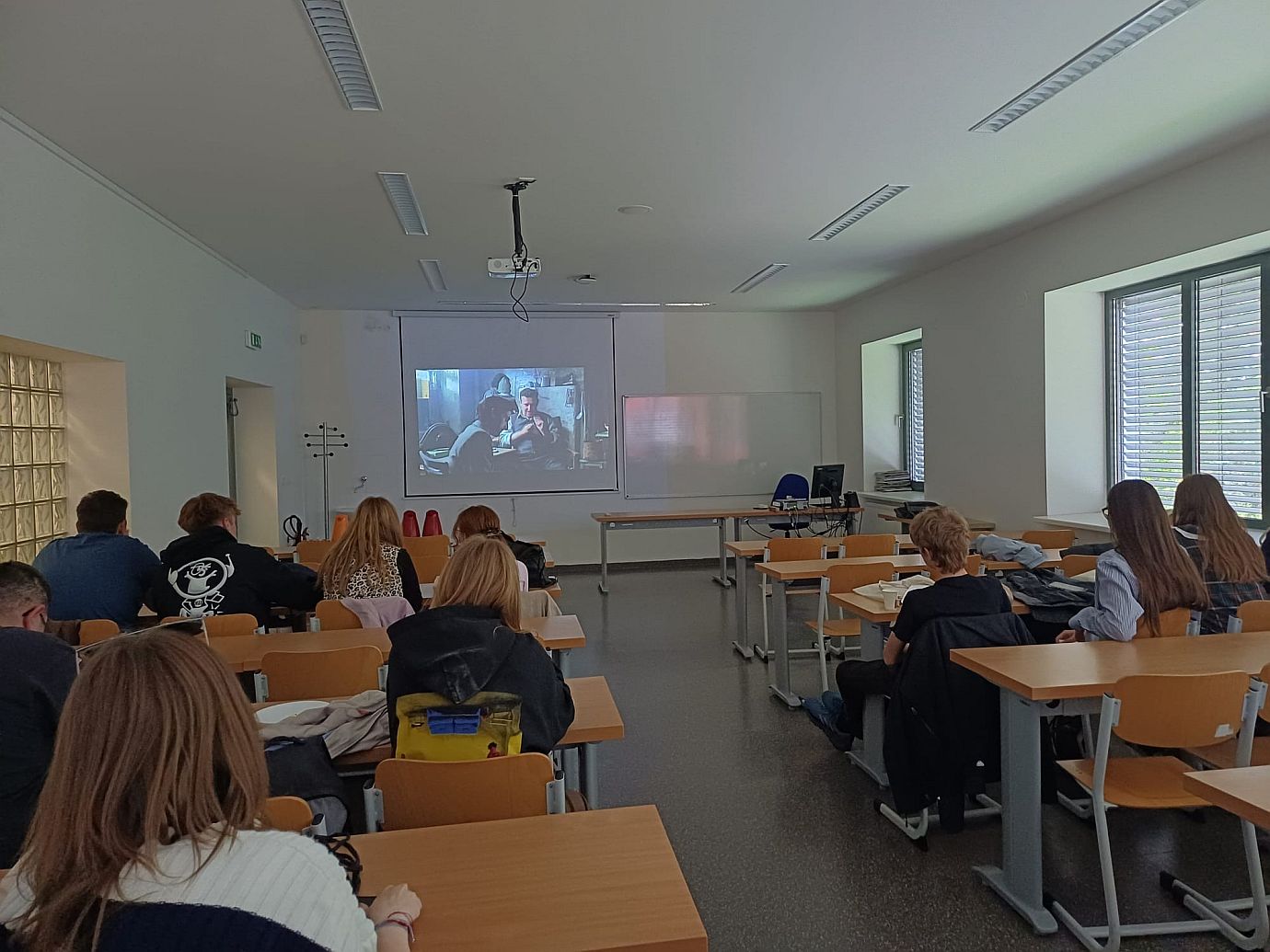
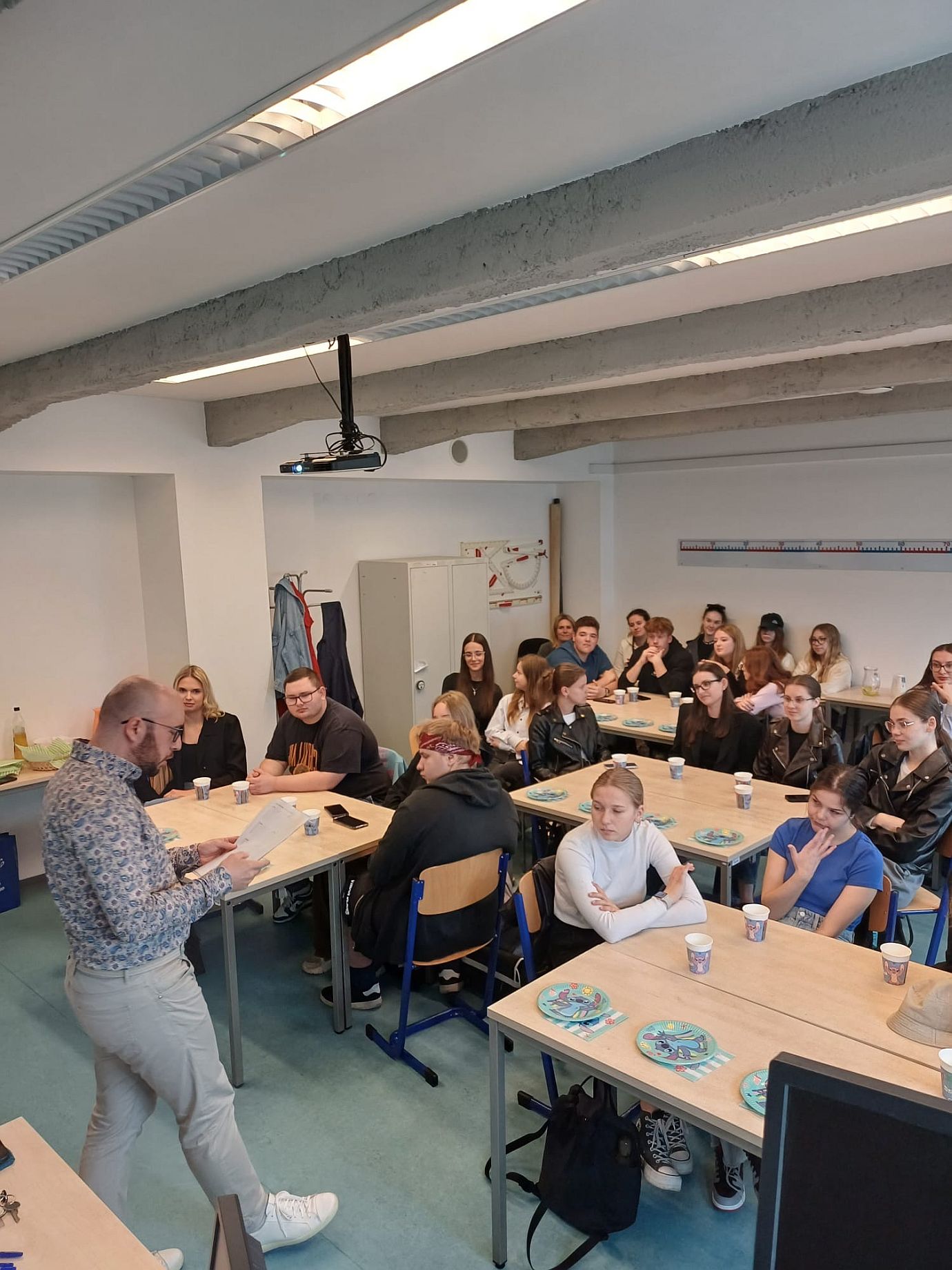
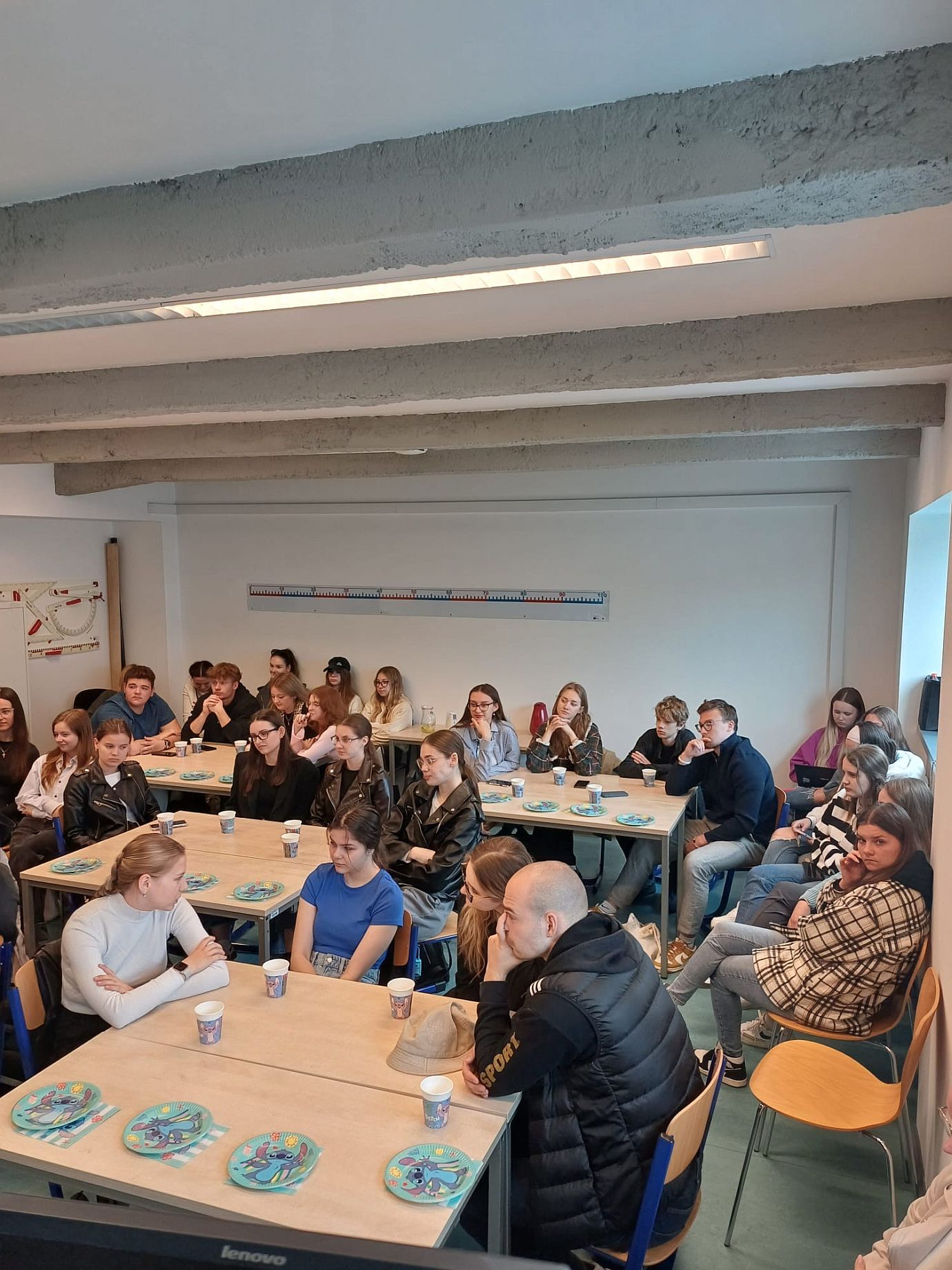
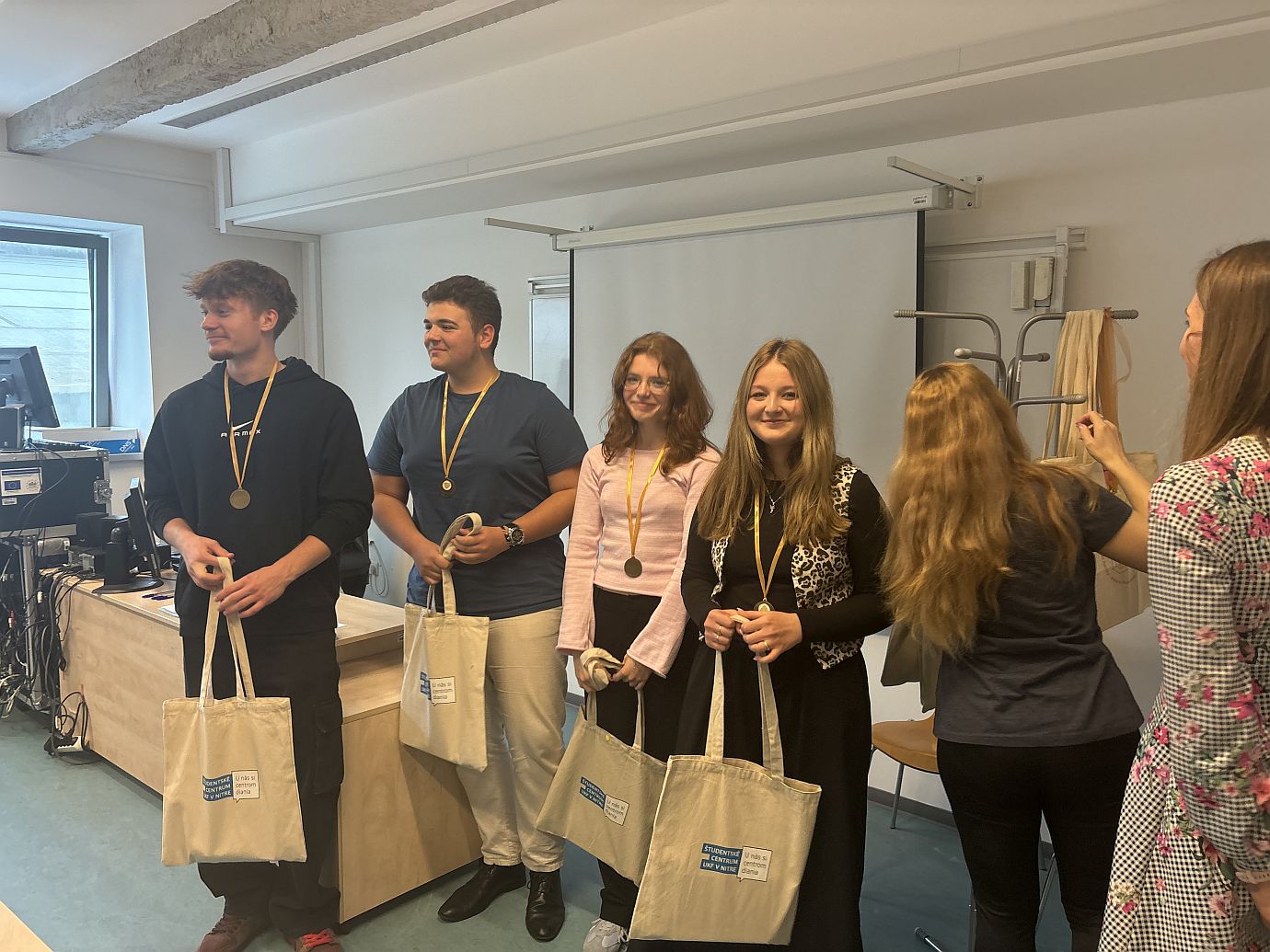
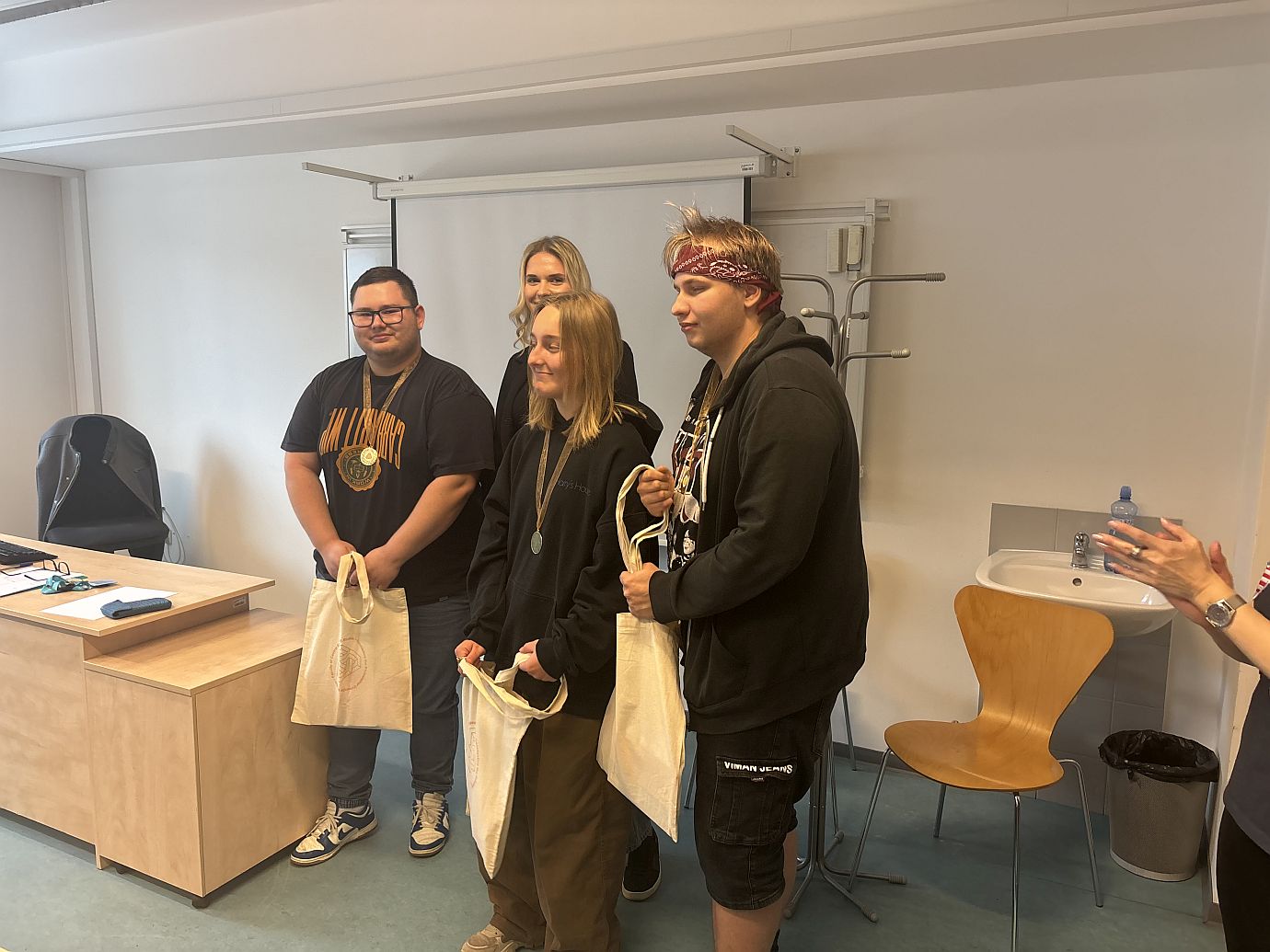
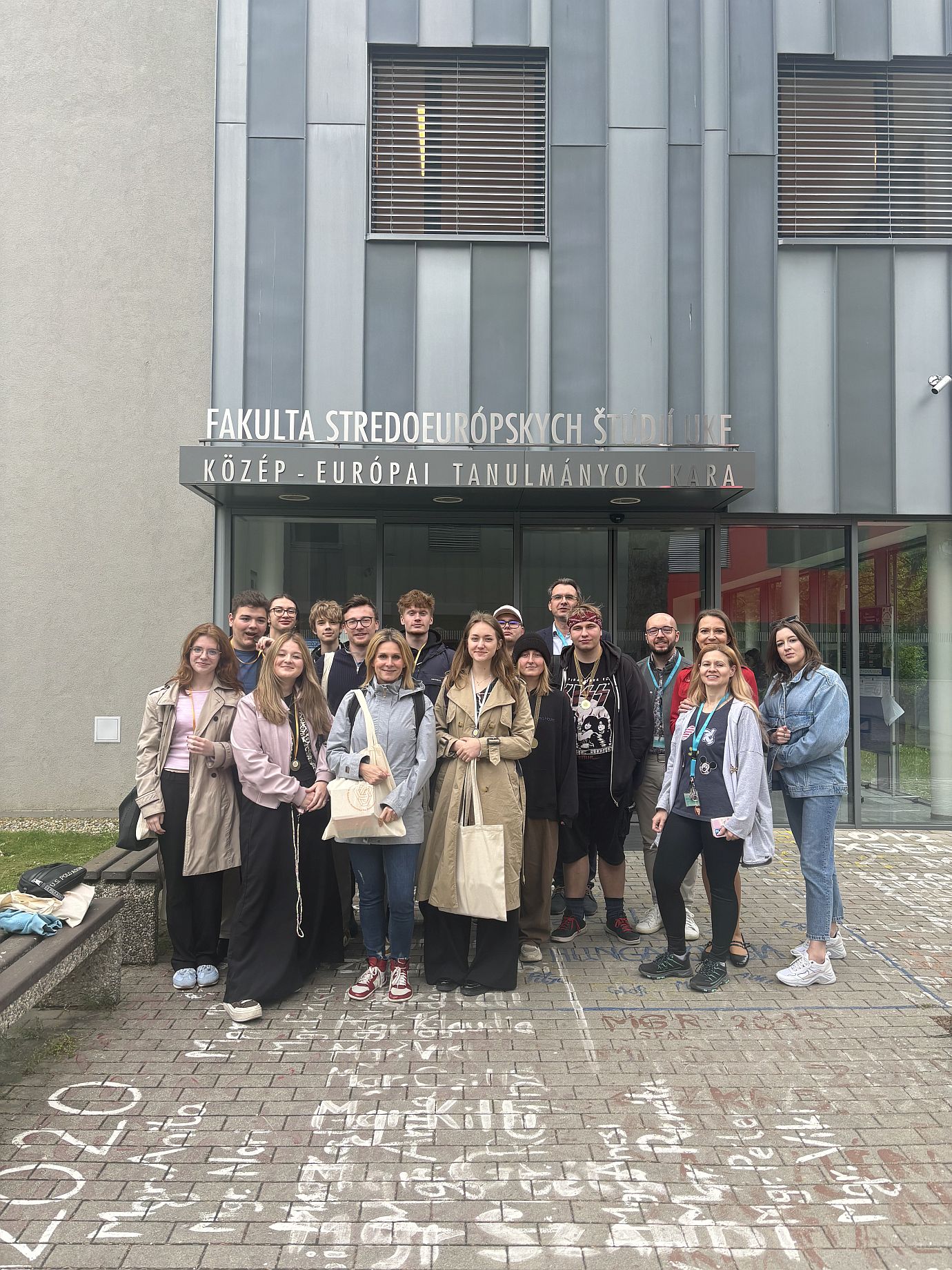
Text: Mgr. Klaudia Klamárová, PhD student,
Foto: ICELC Team




